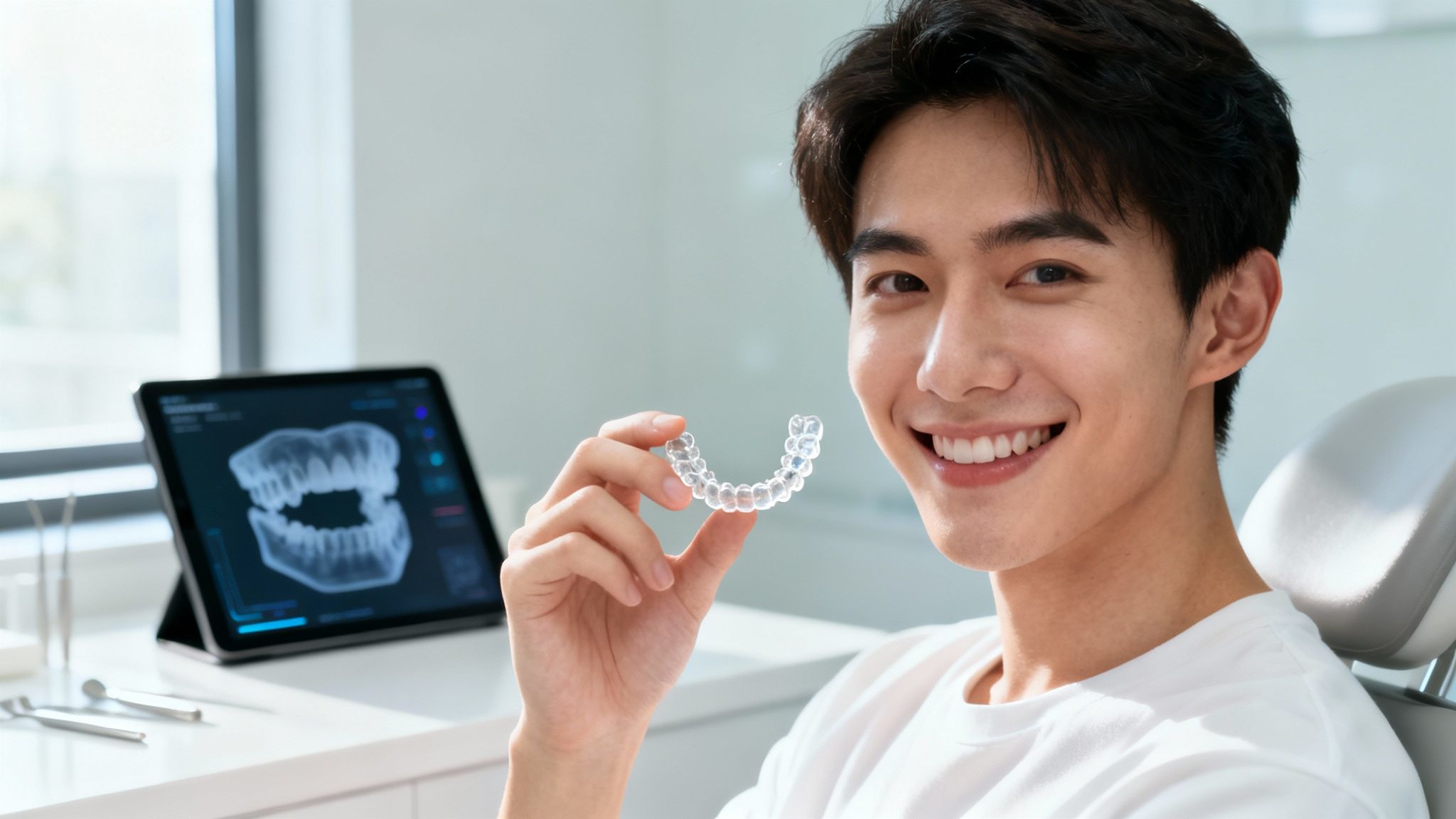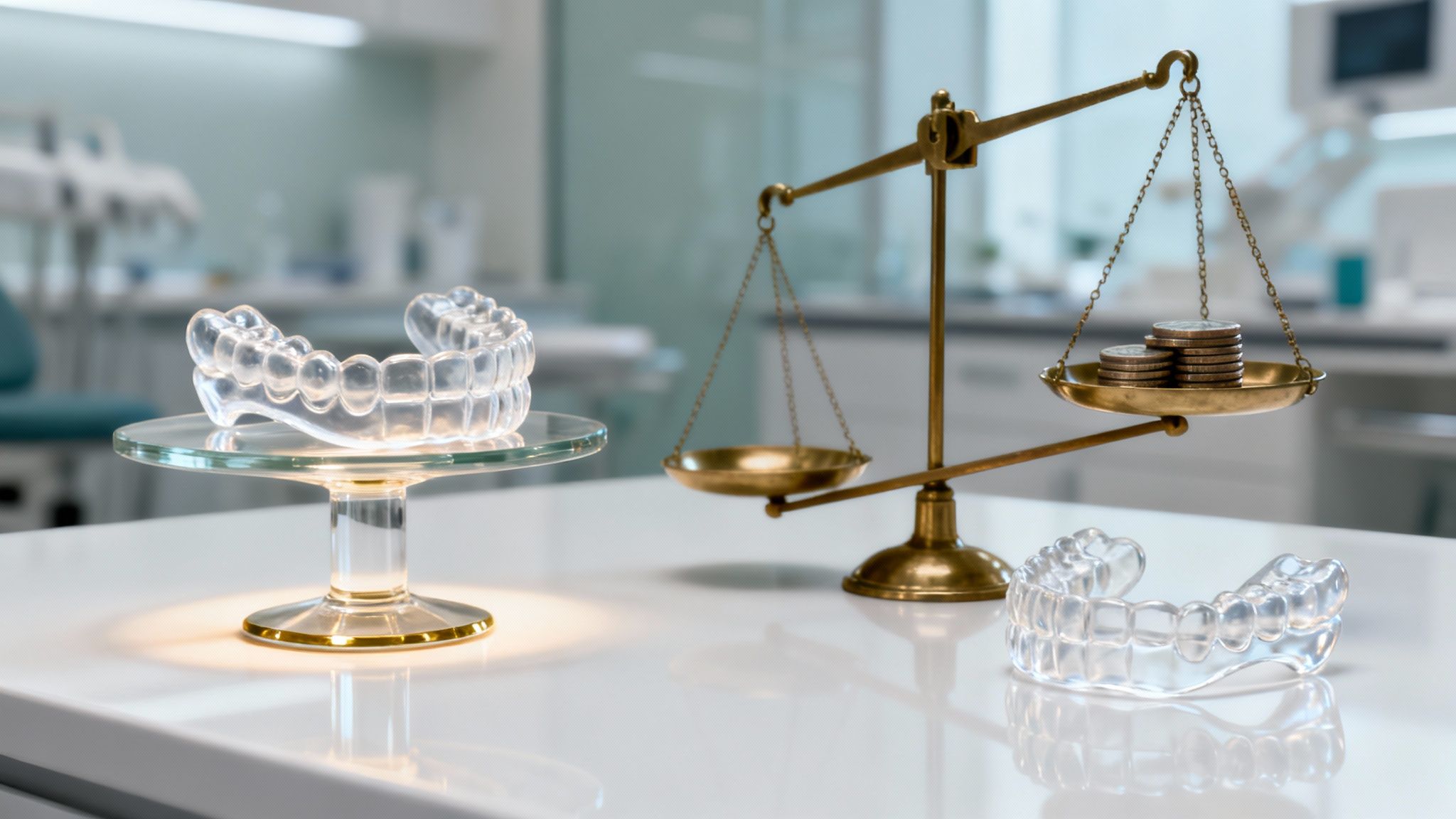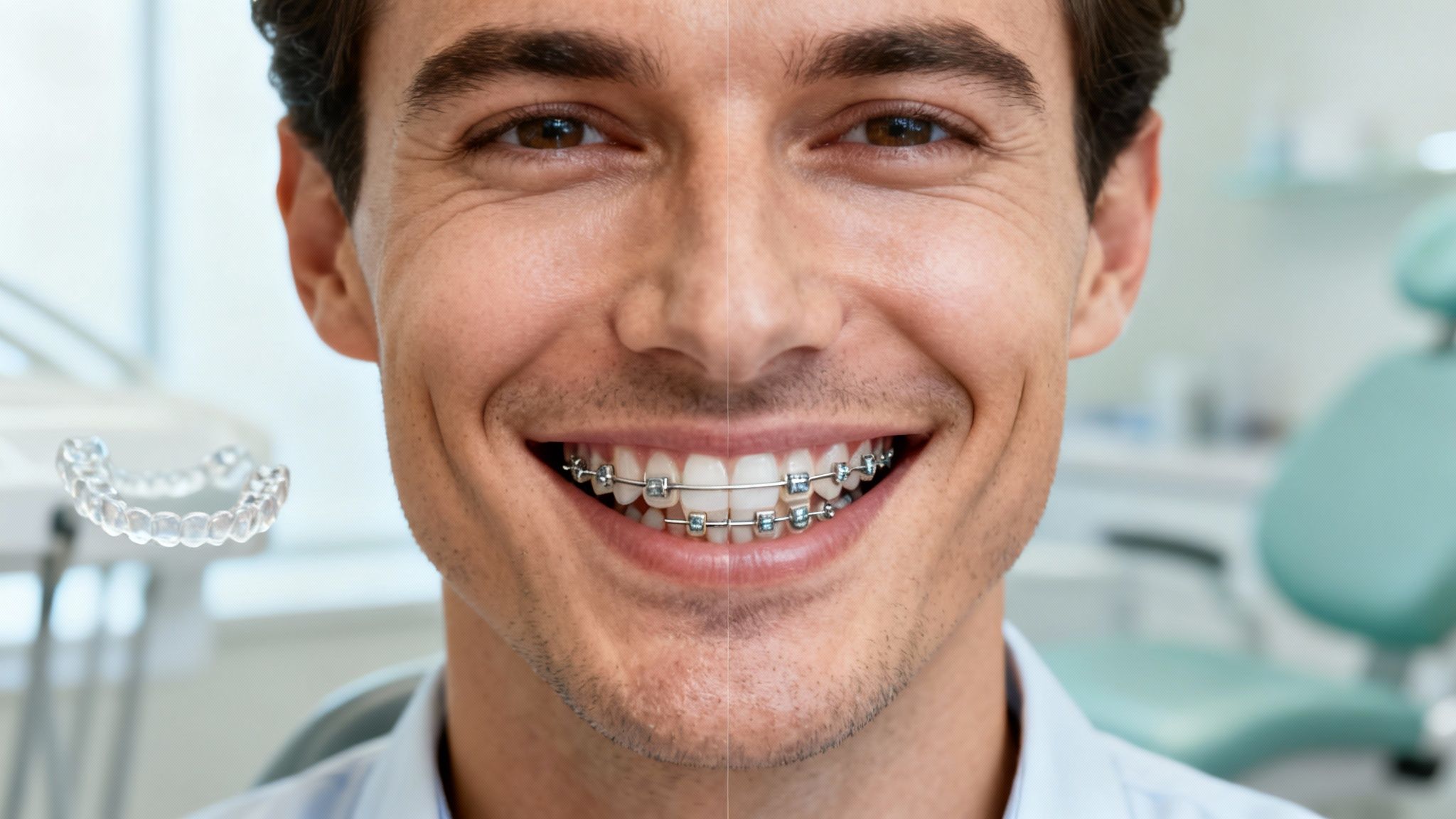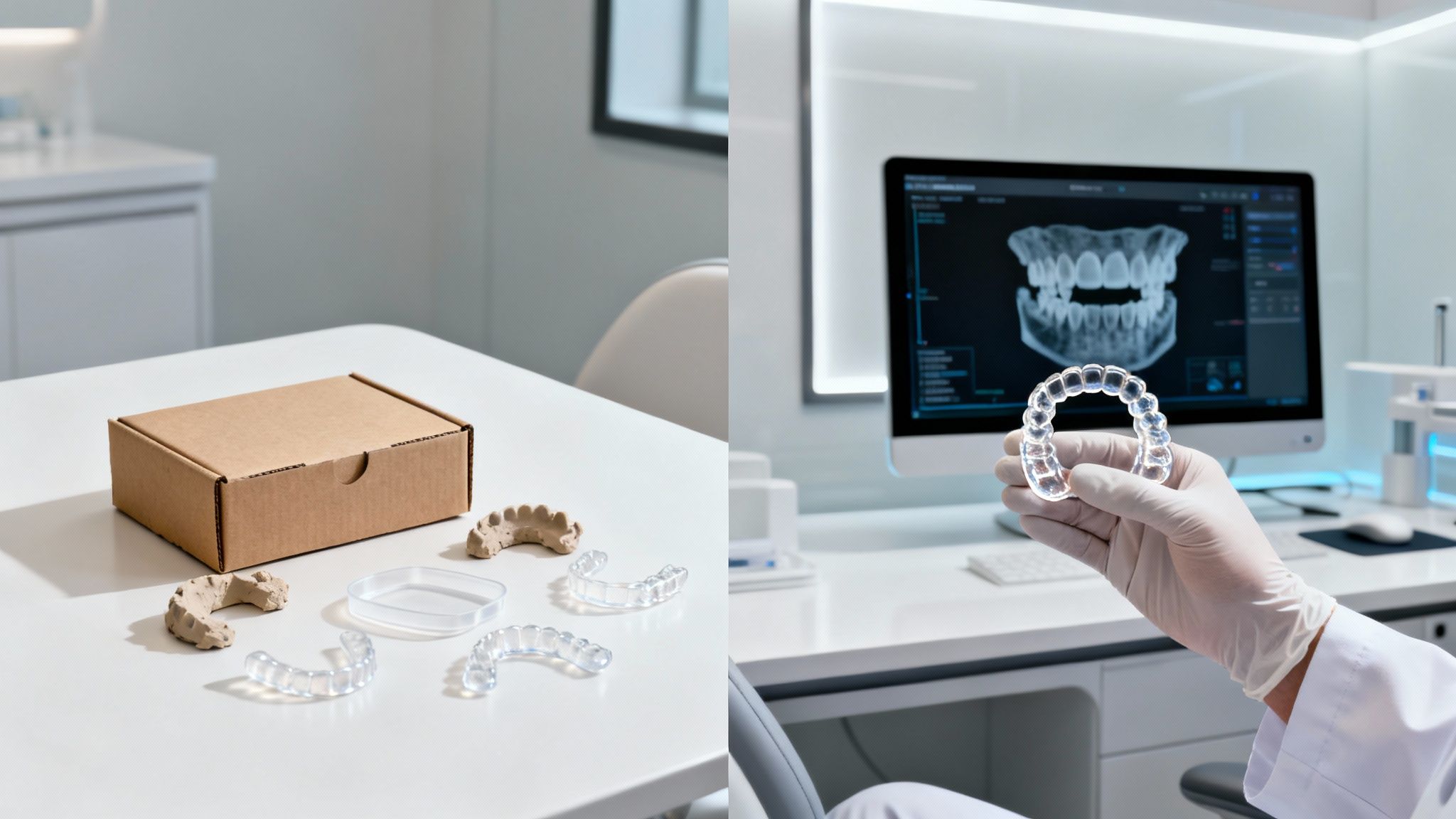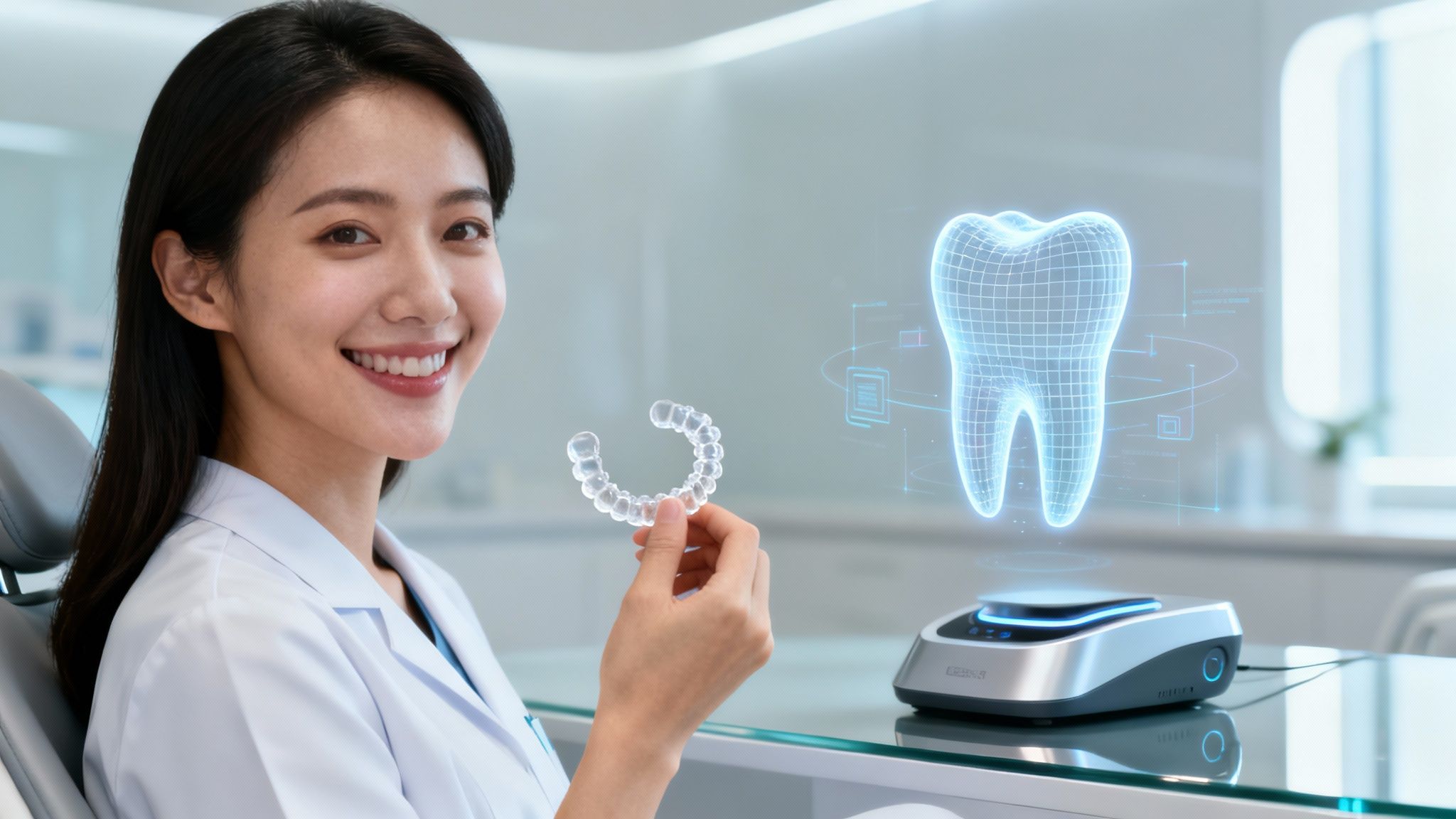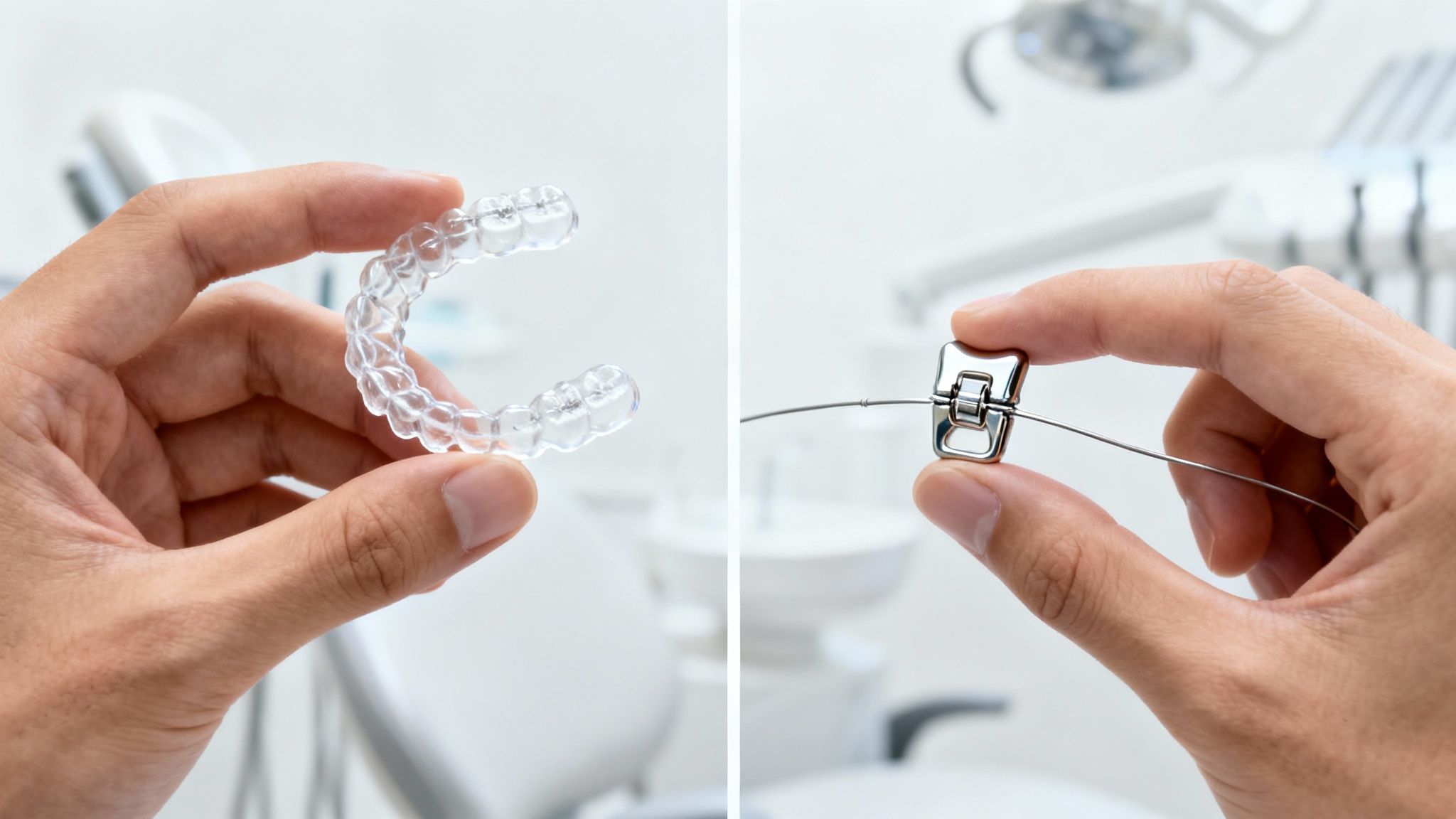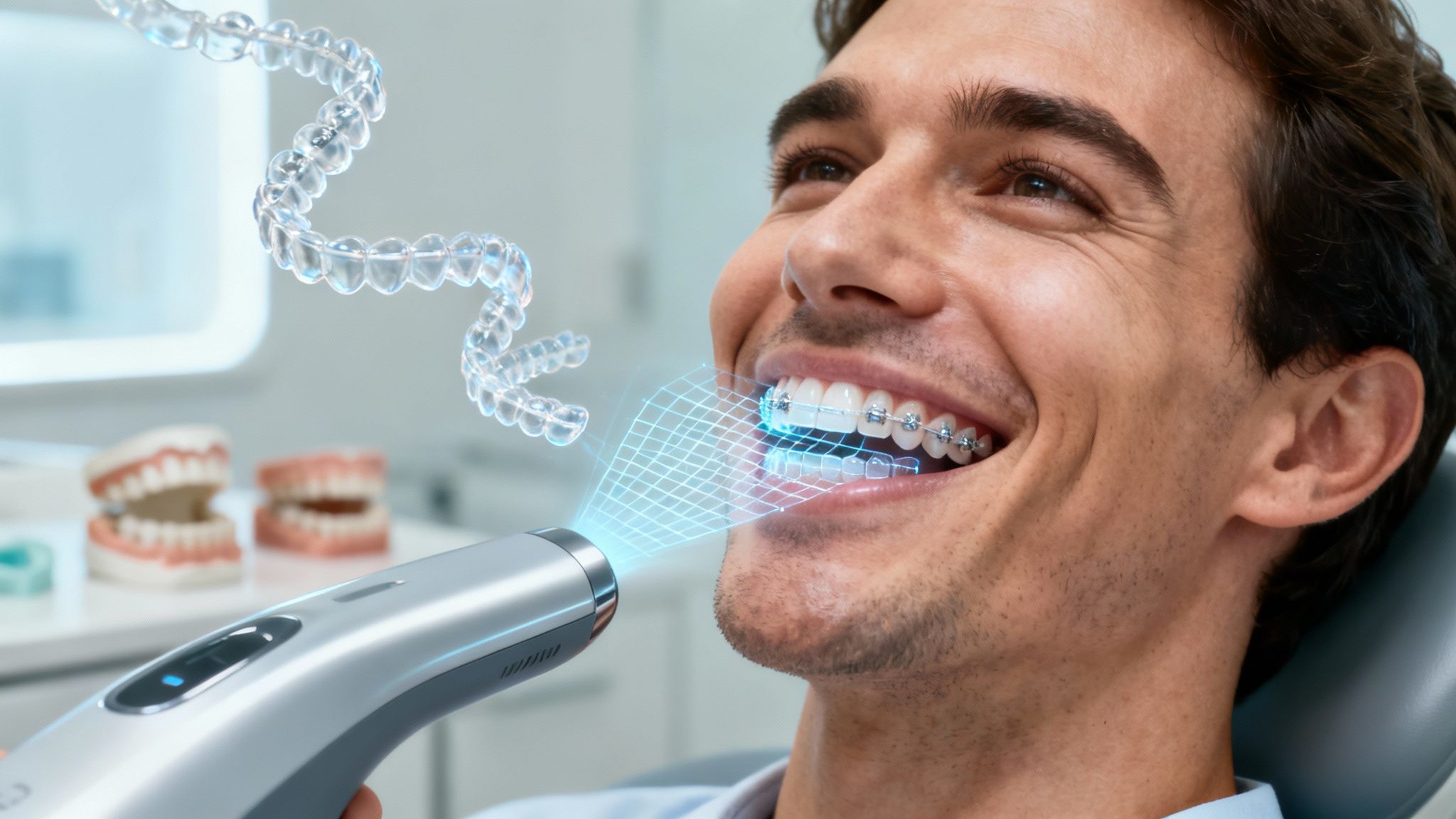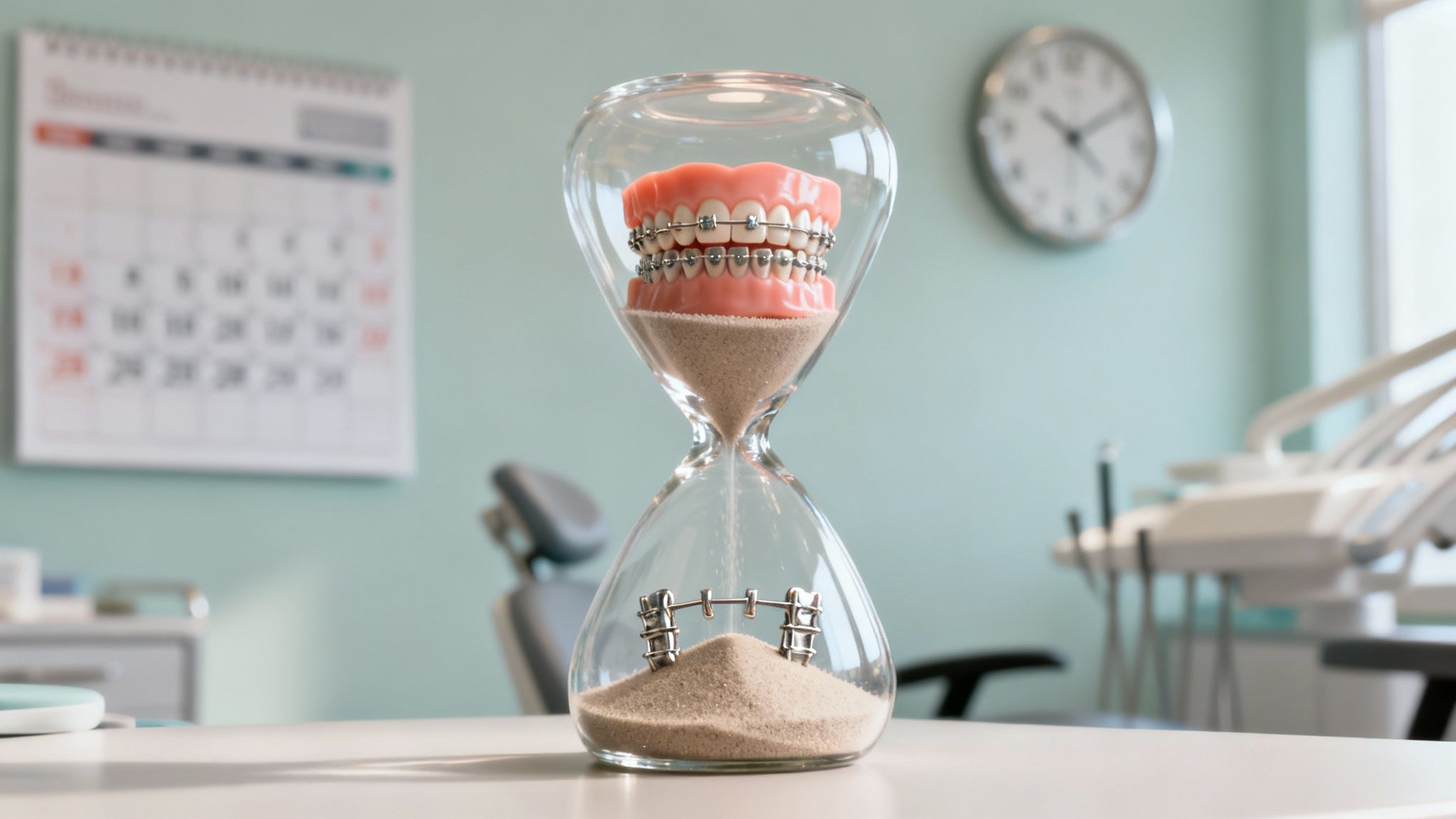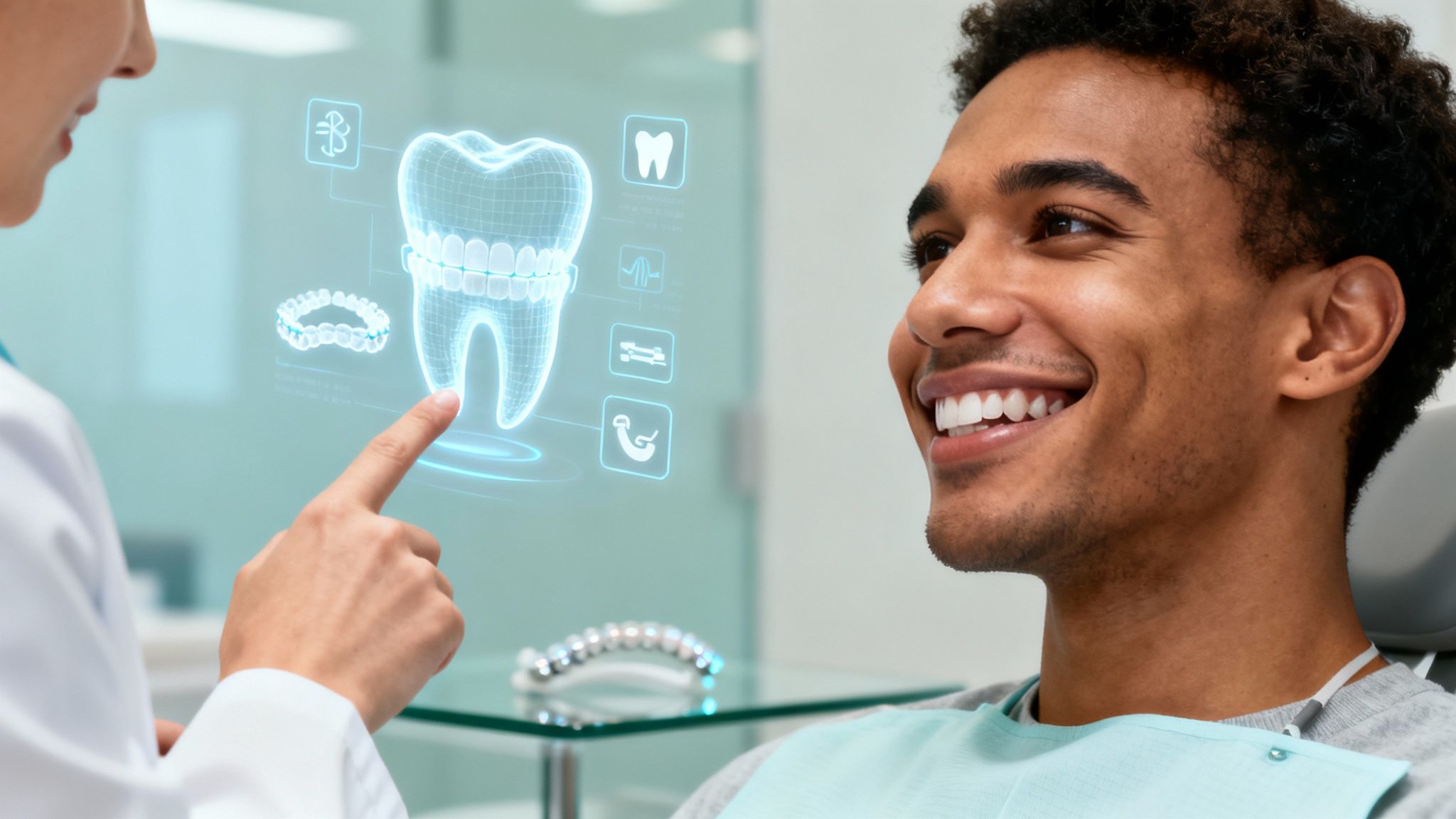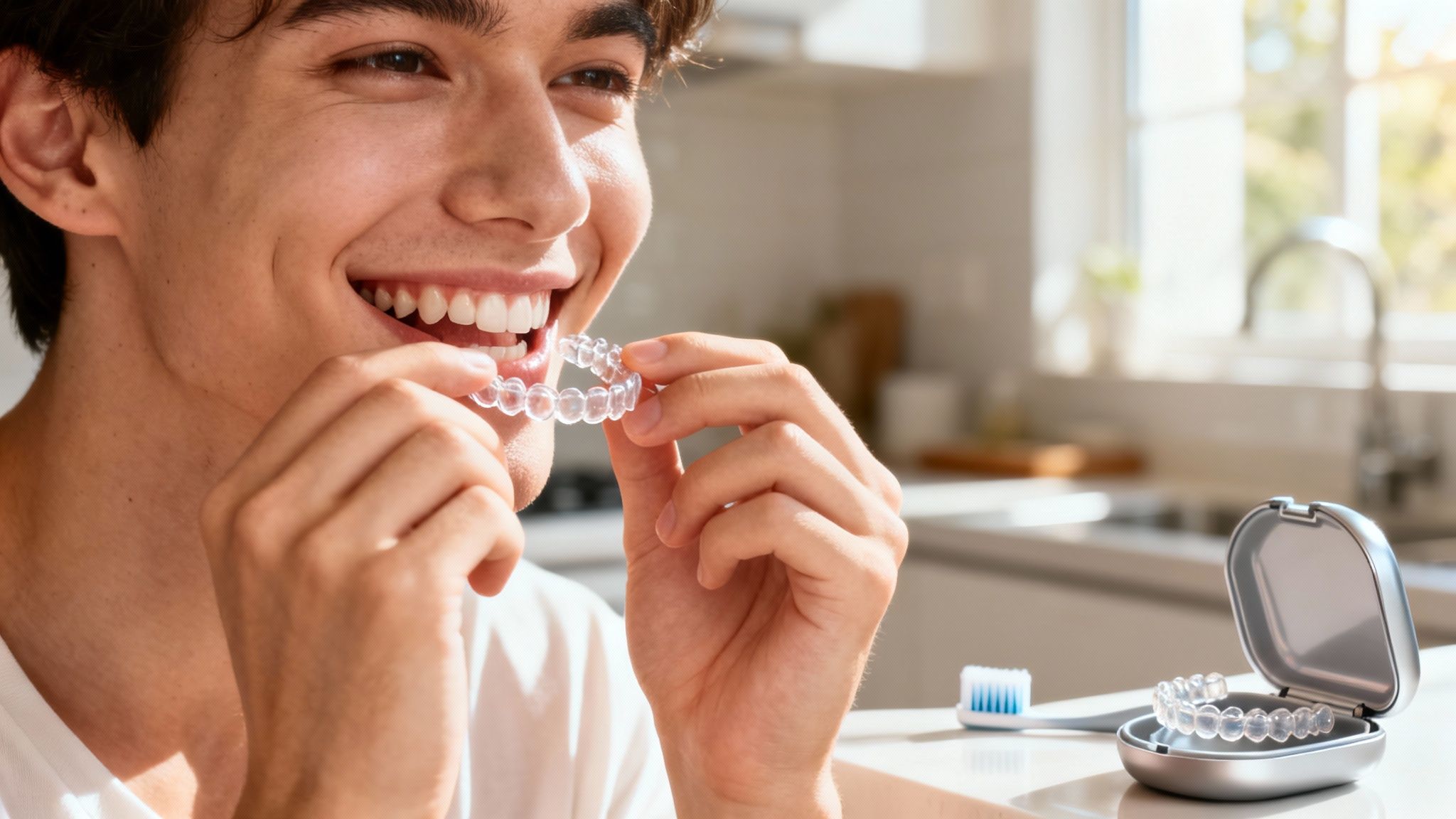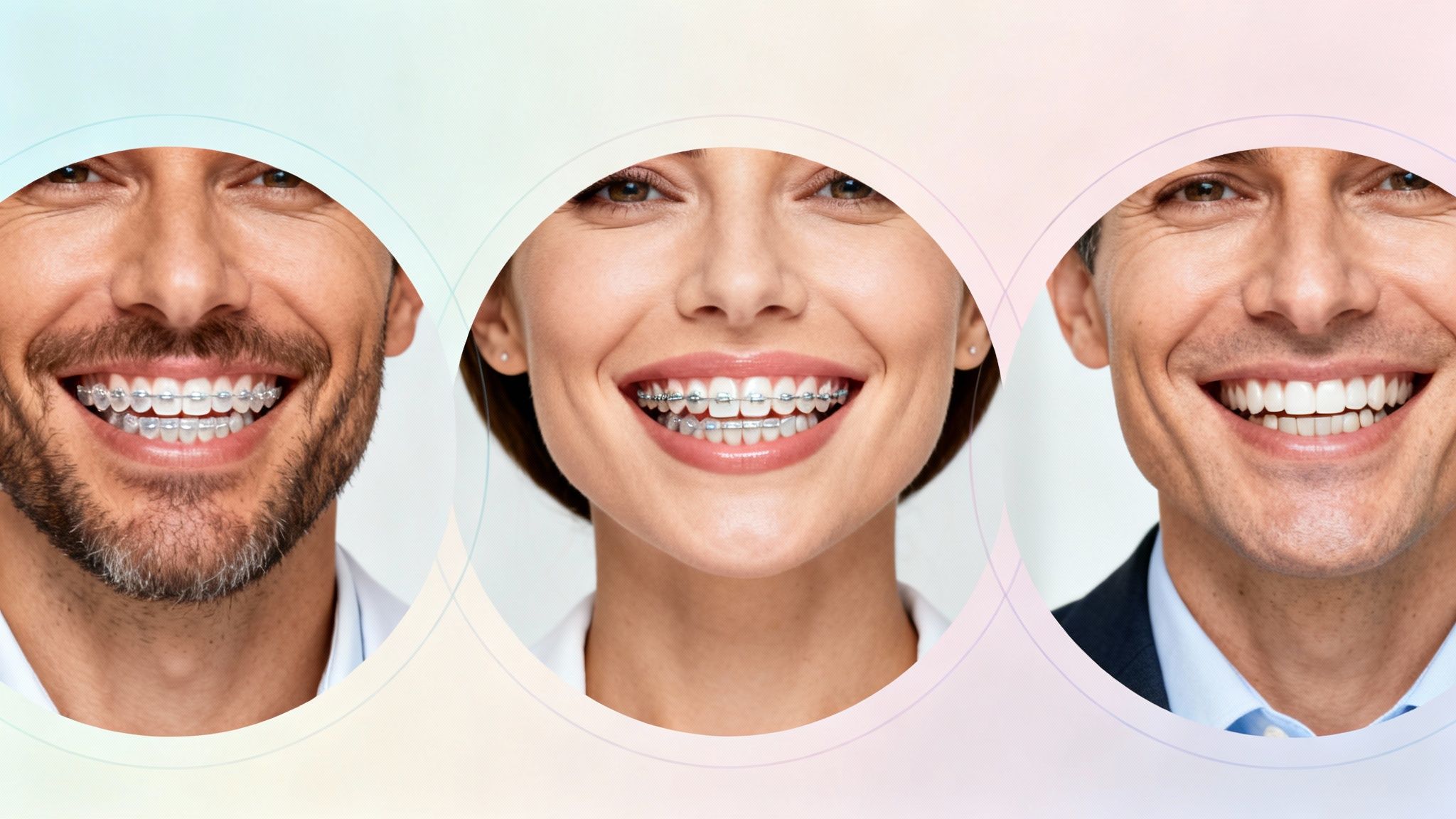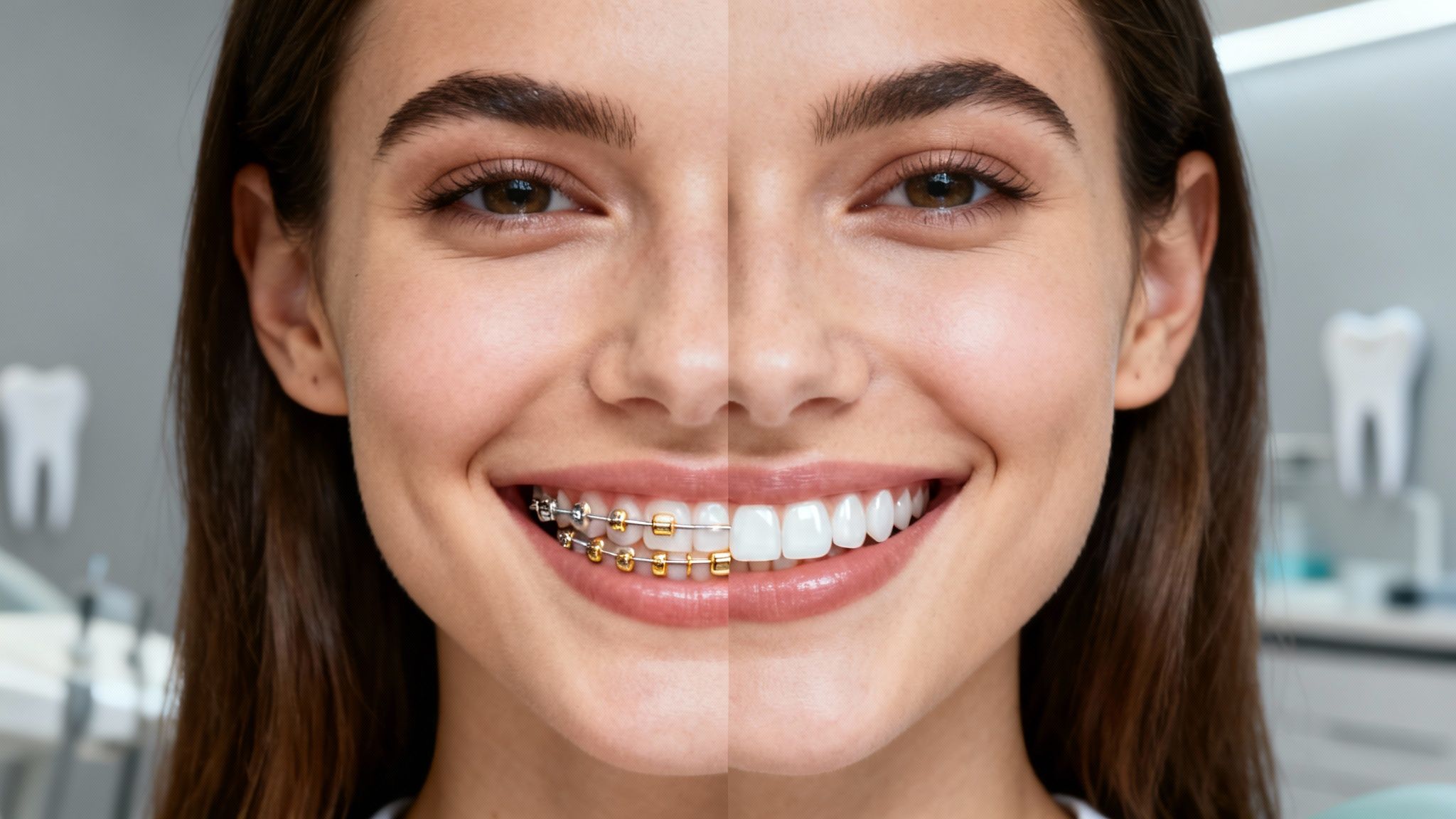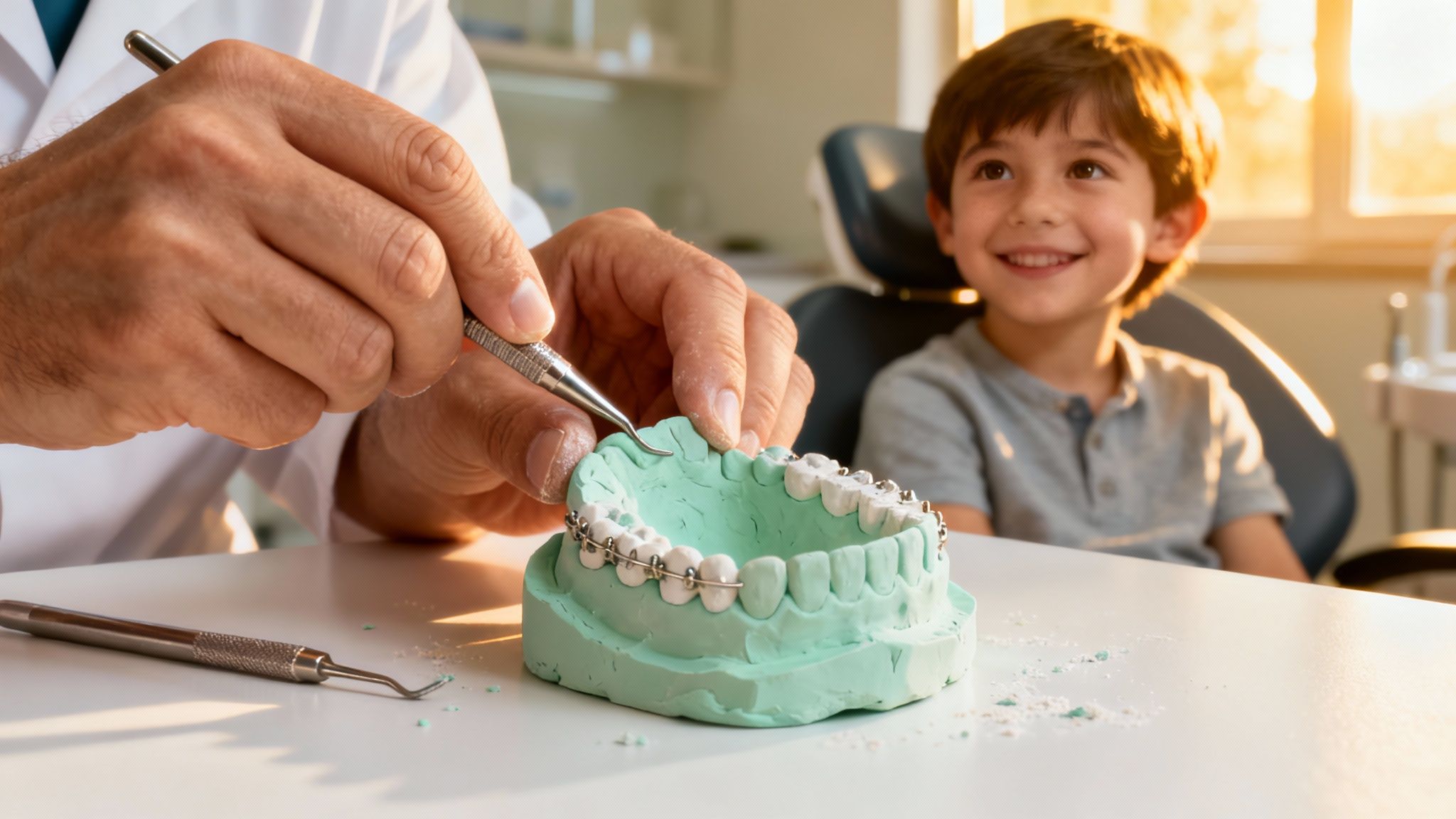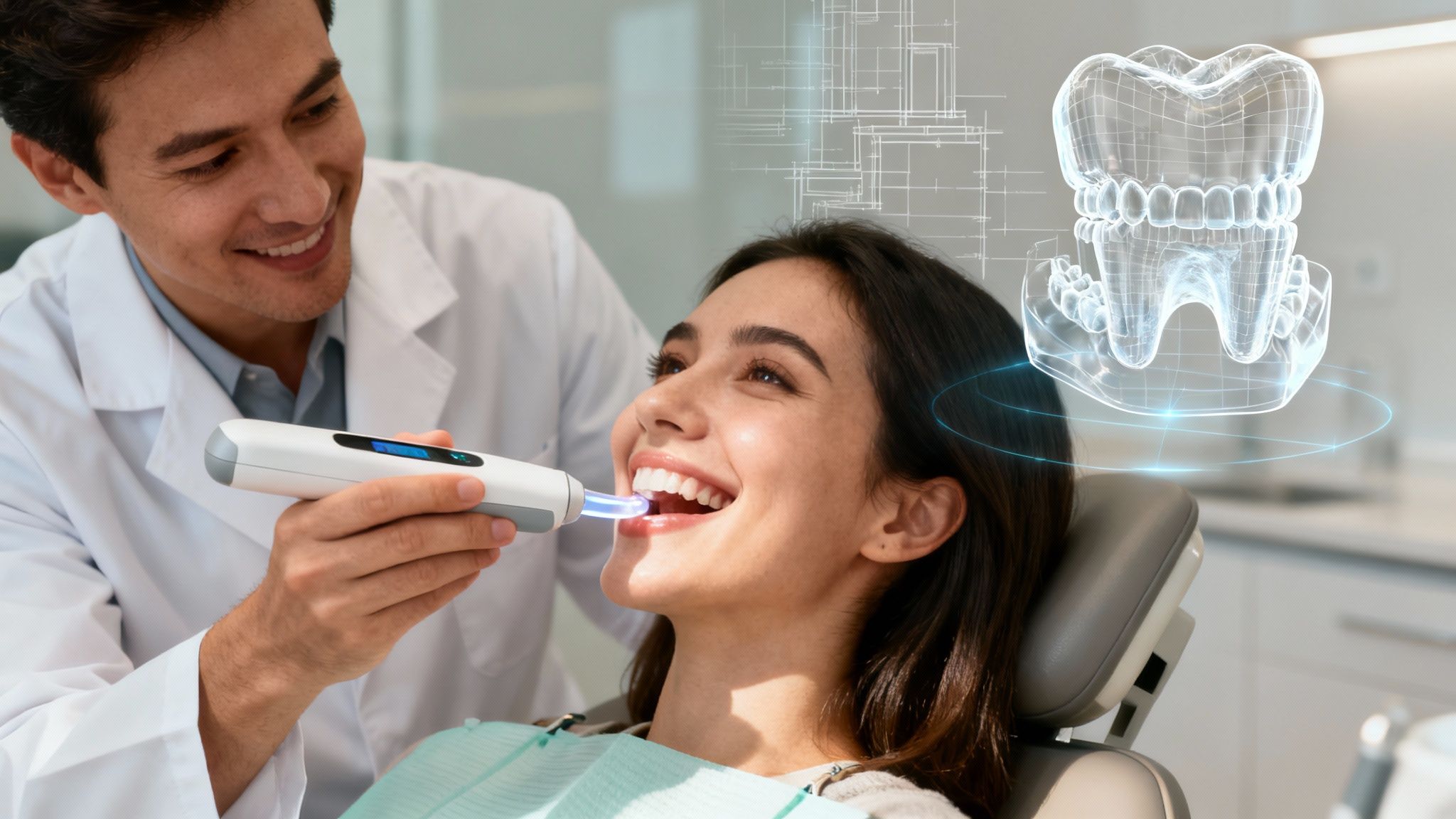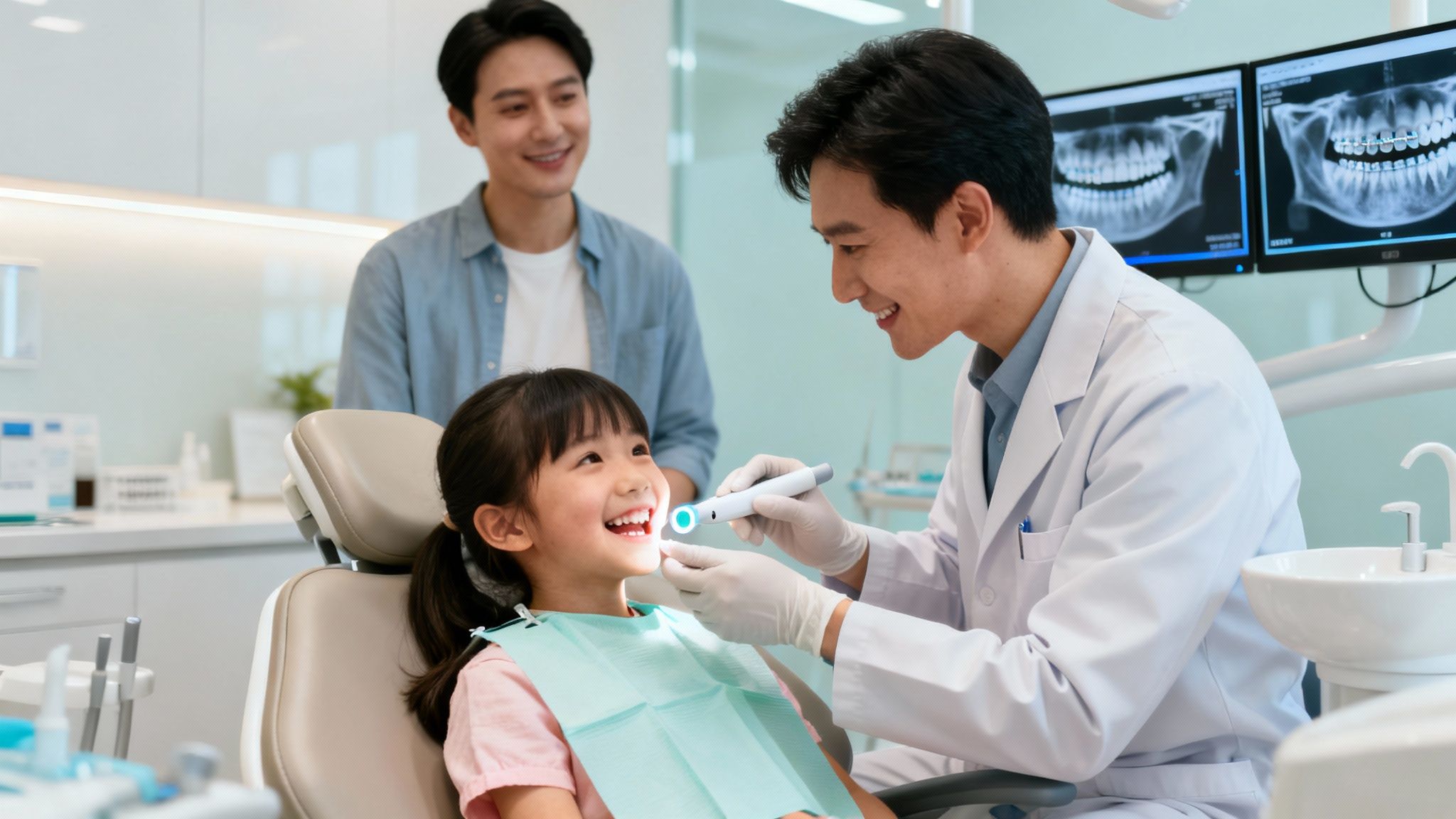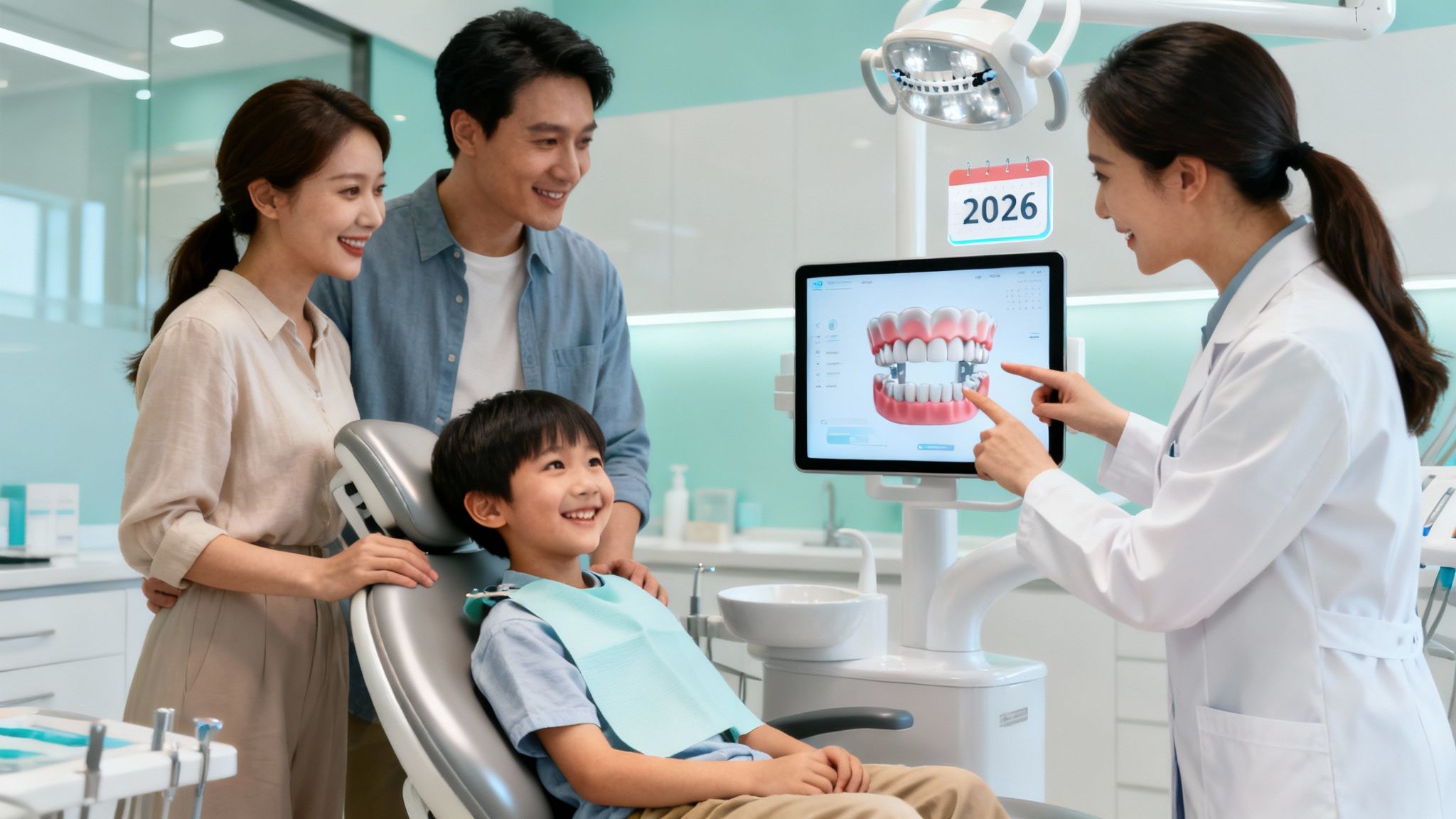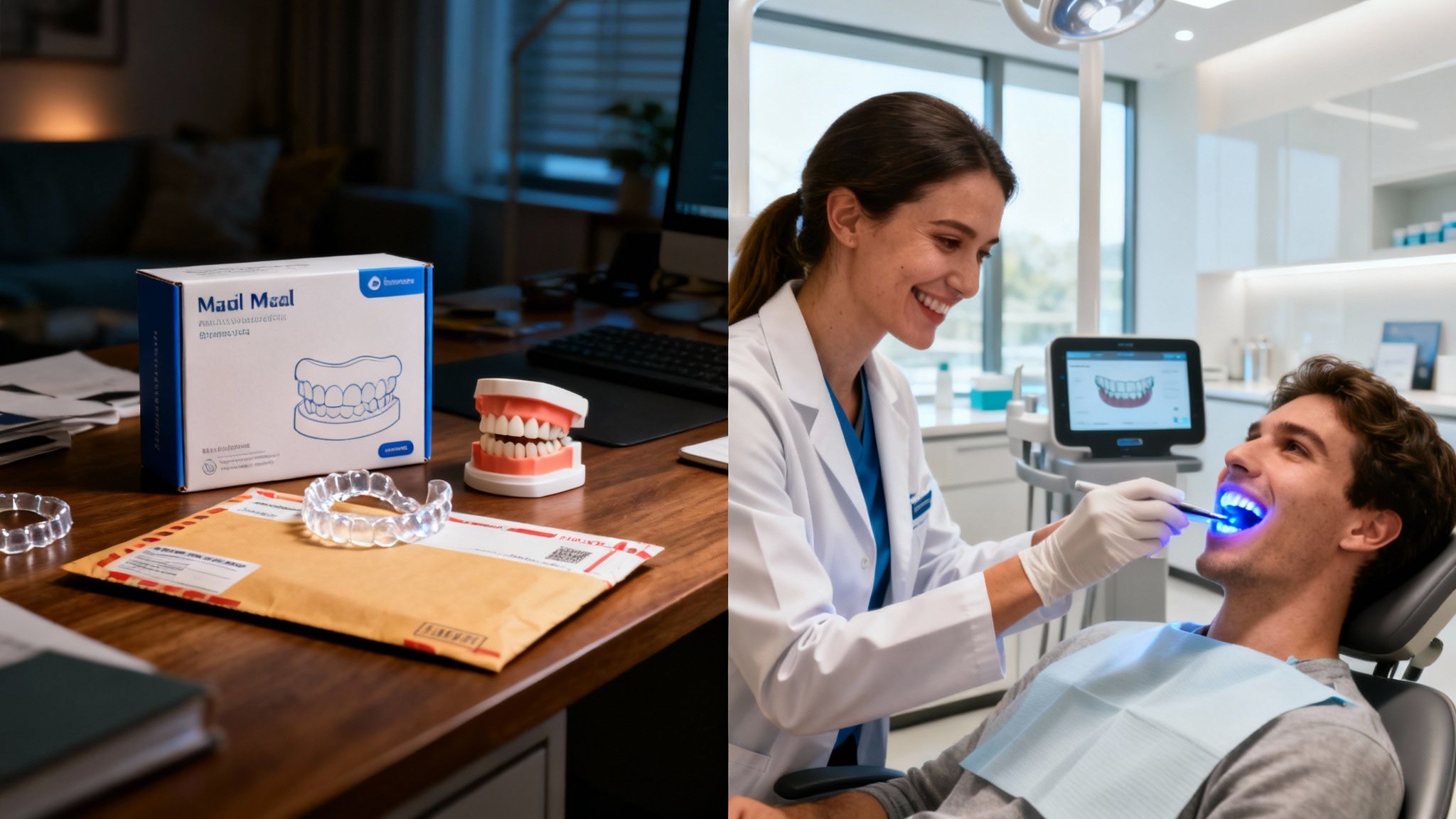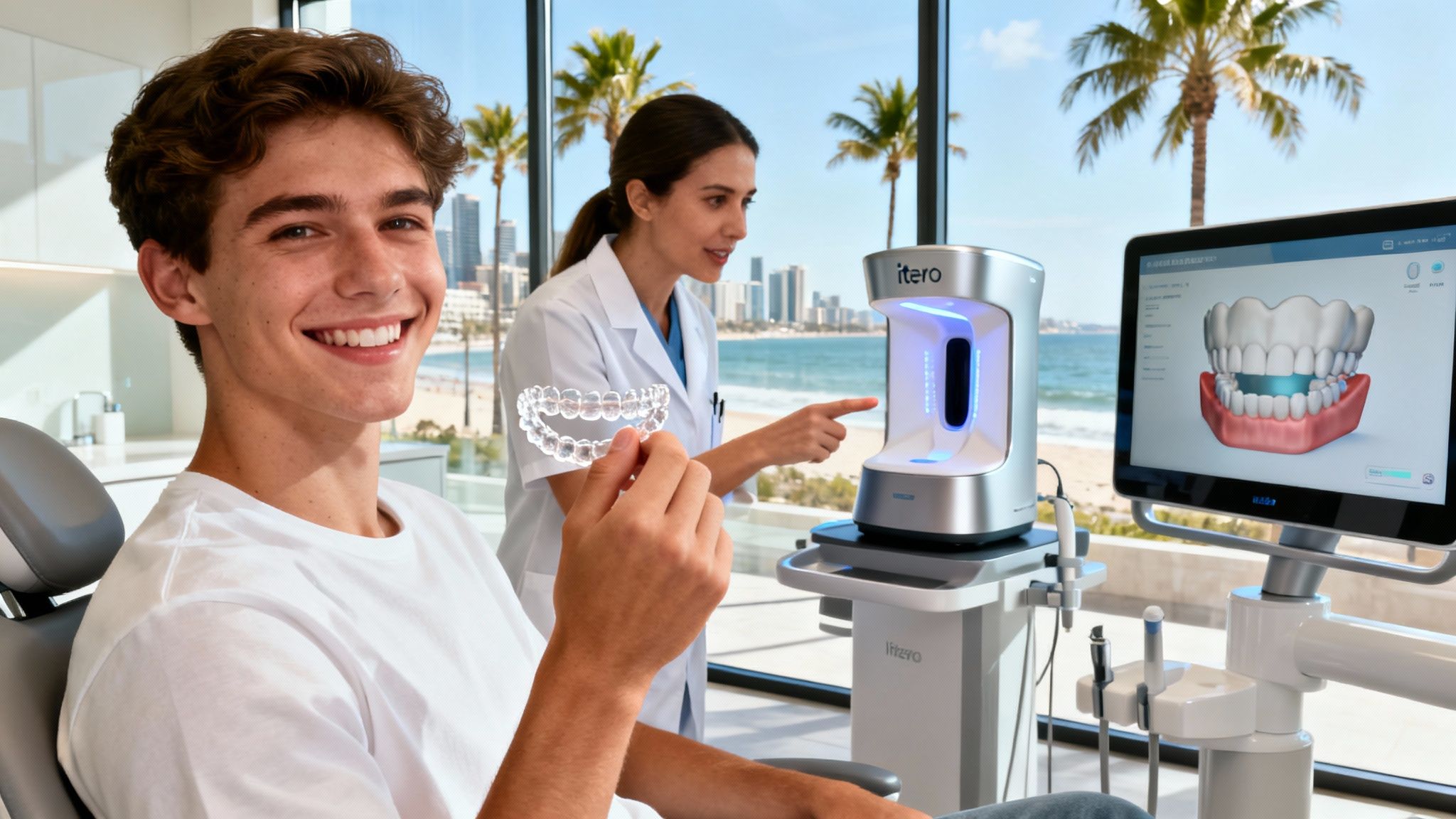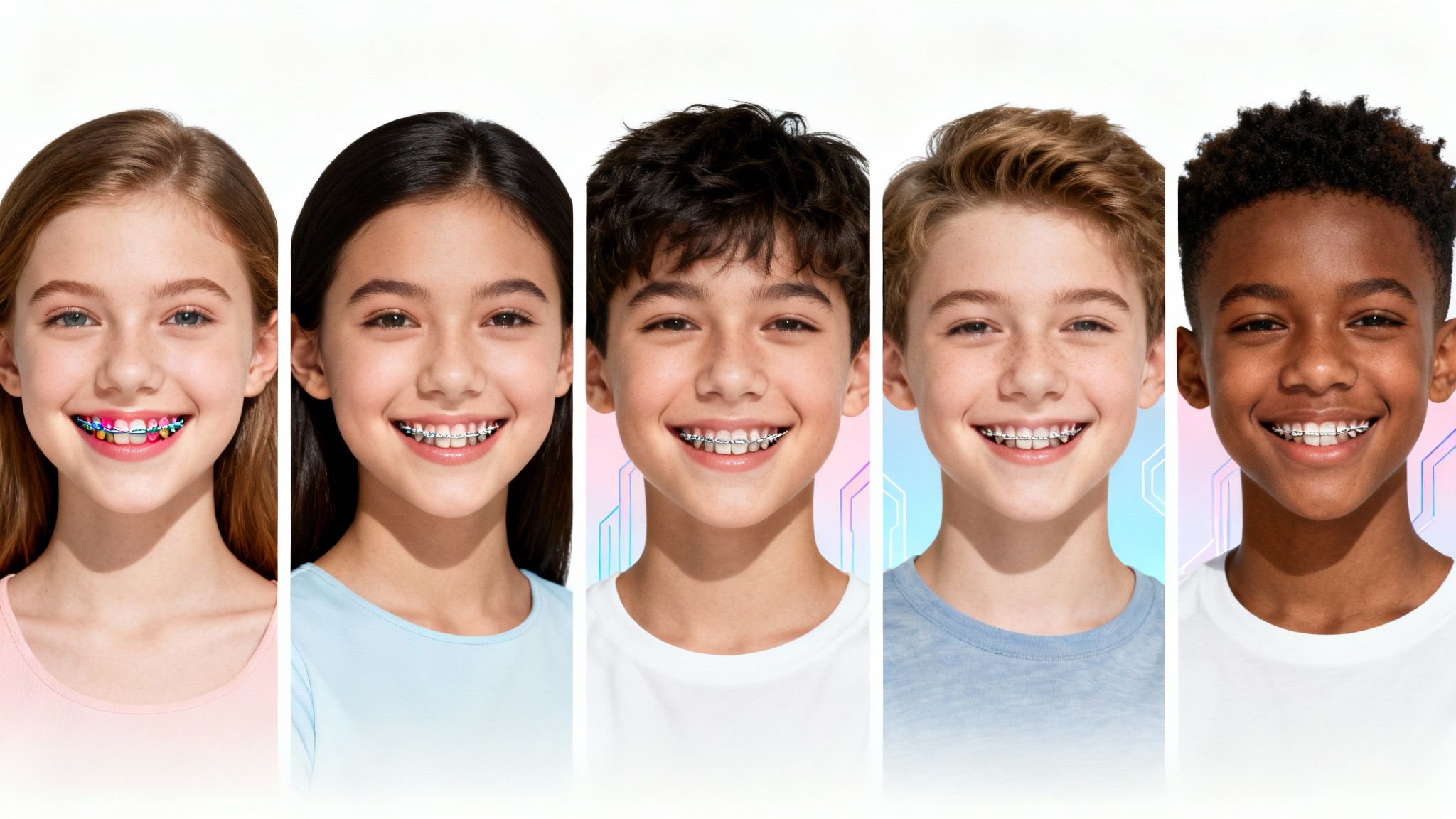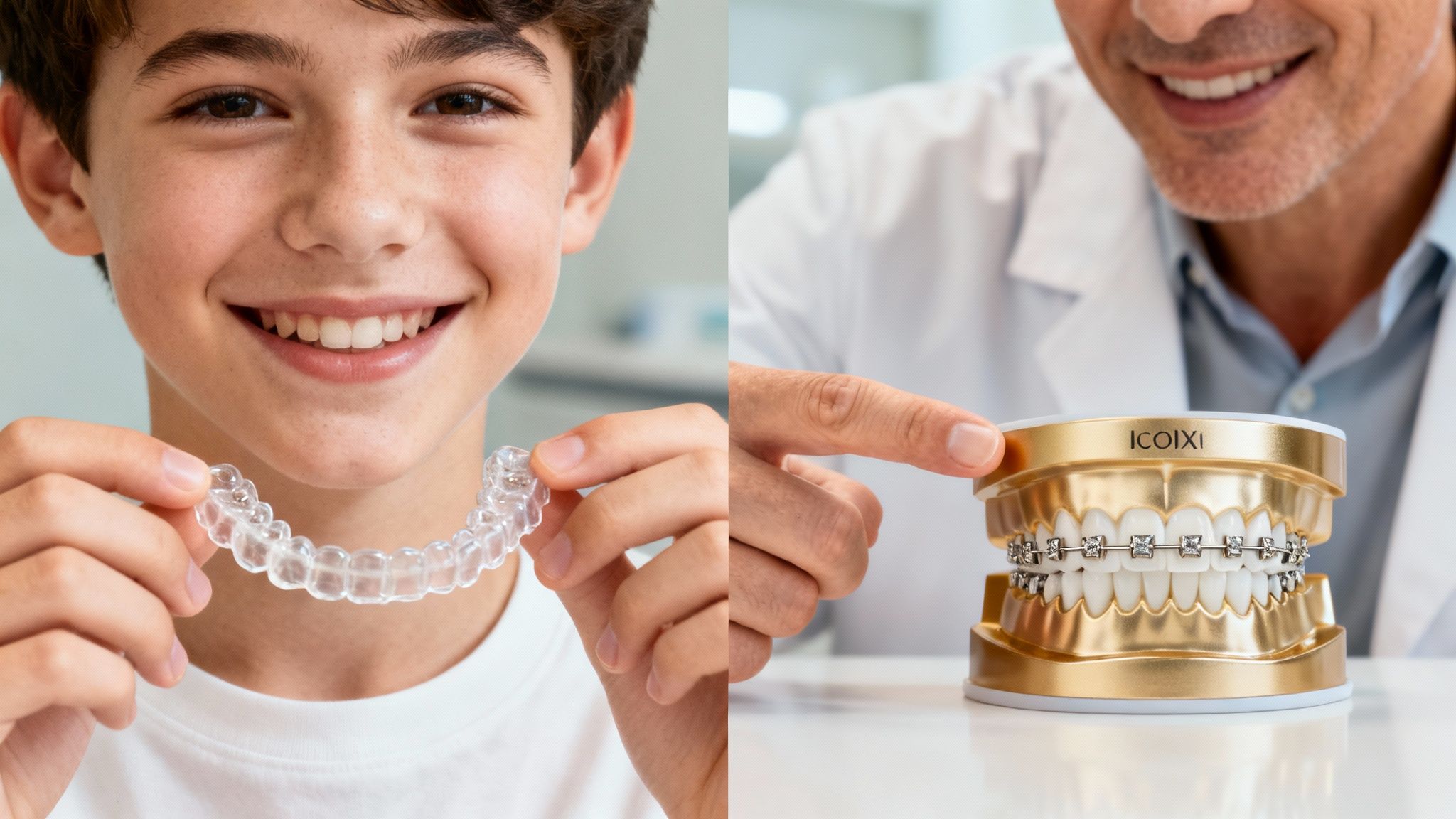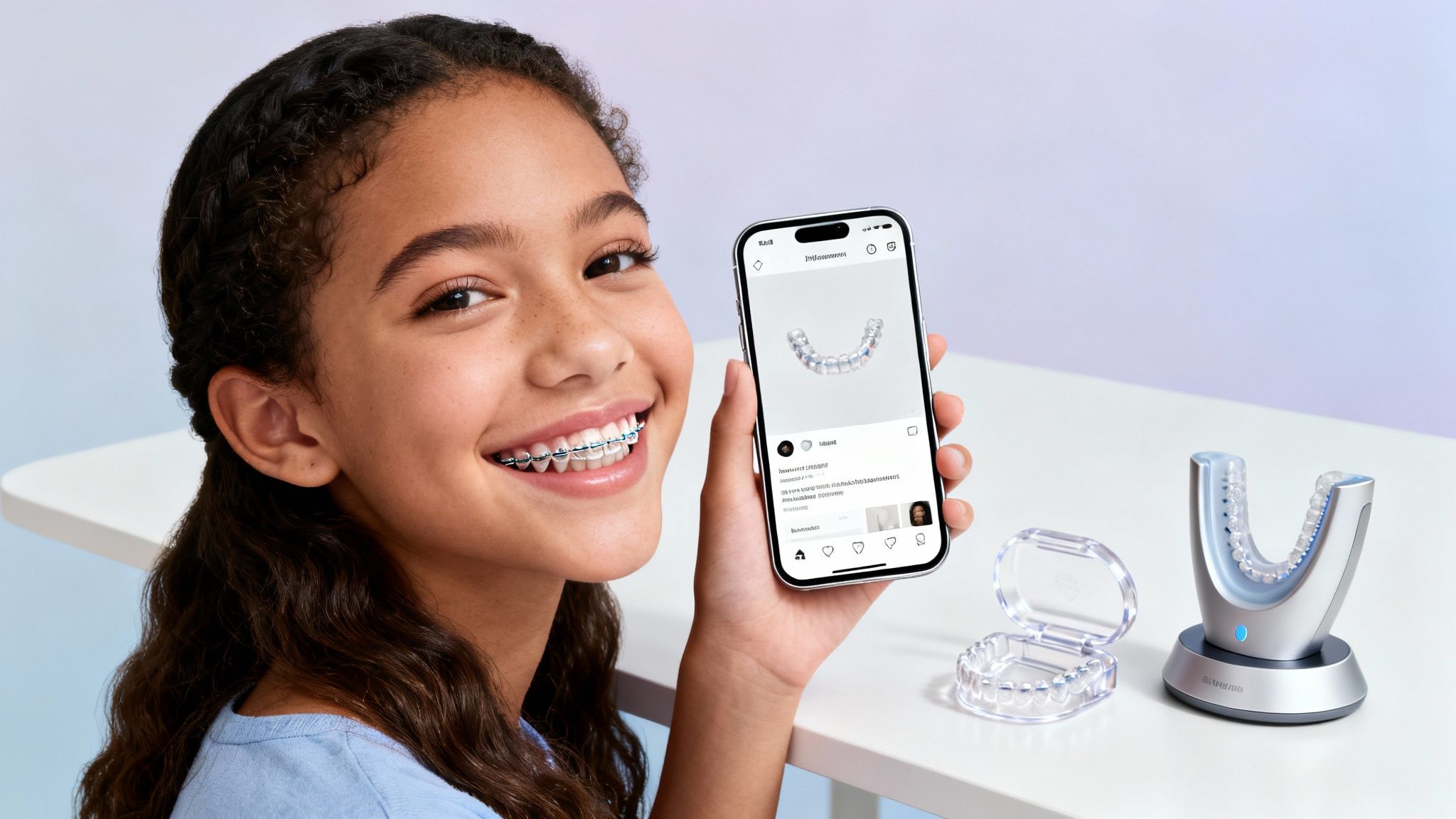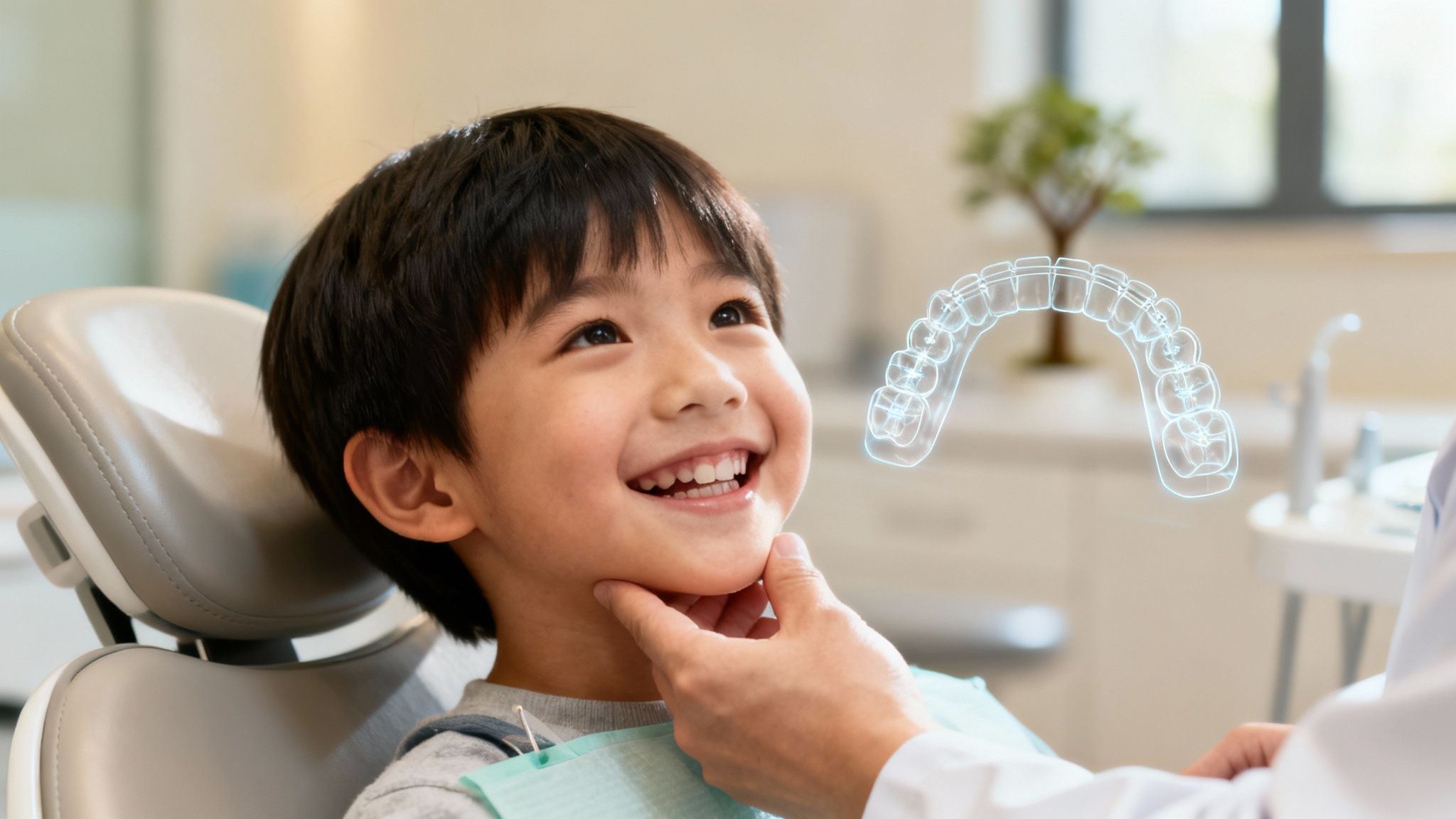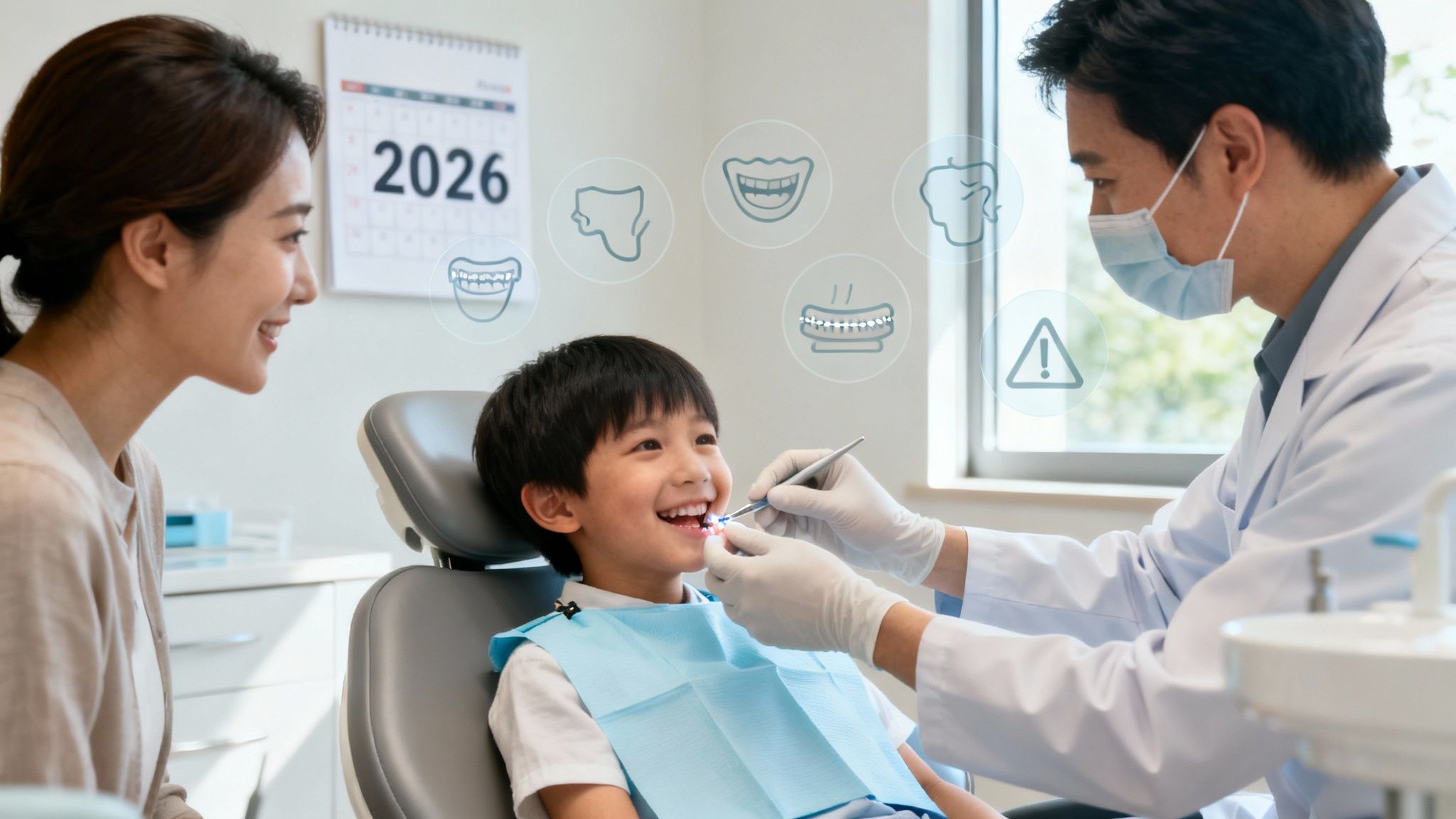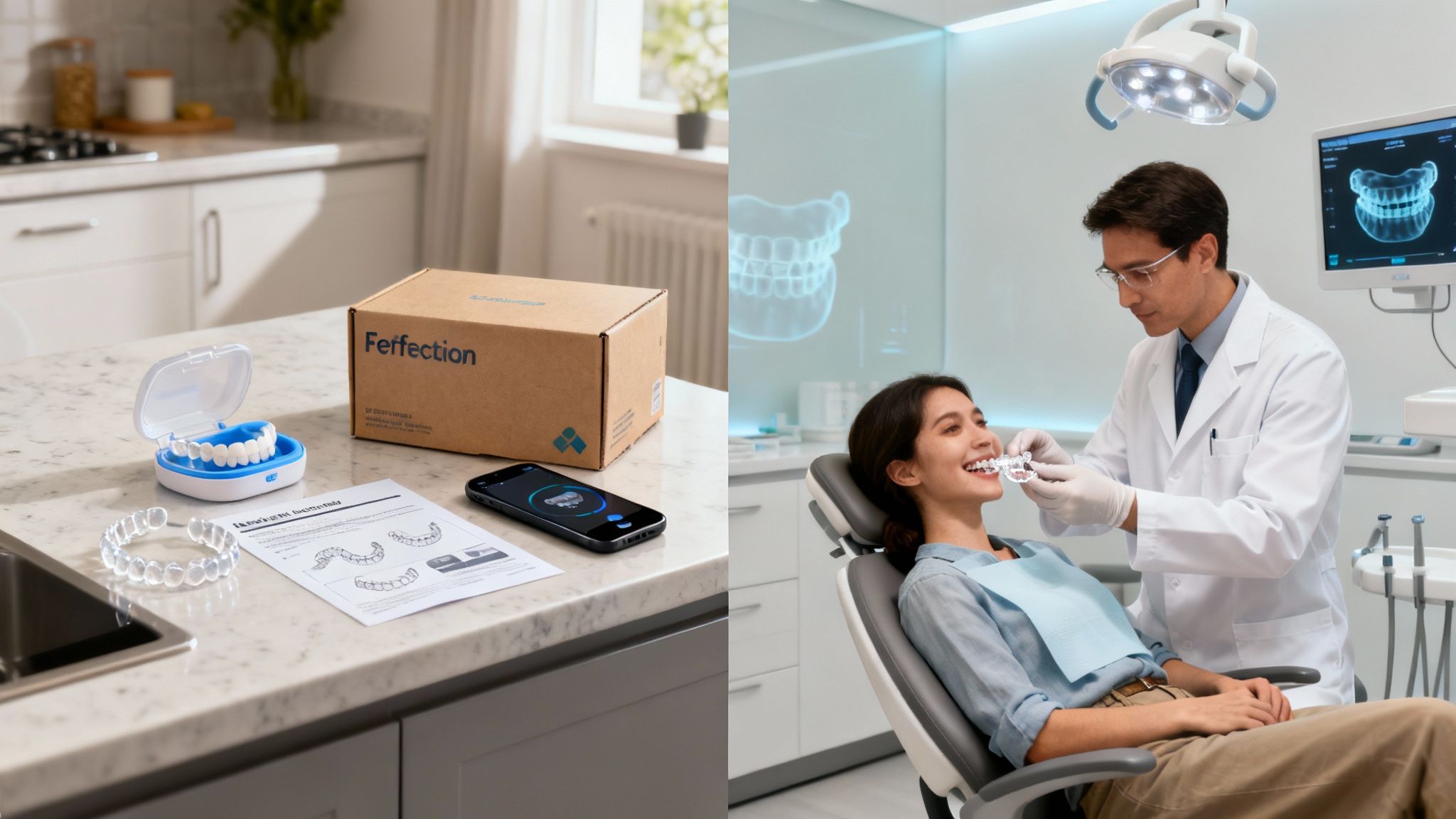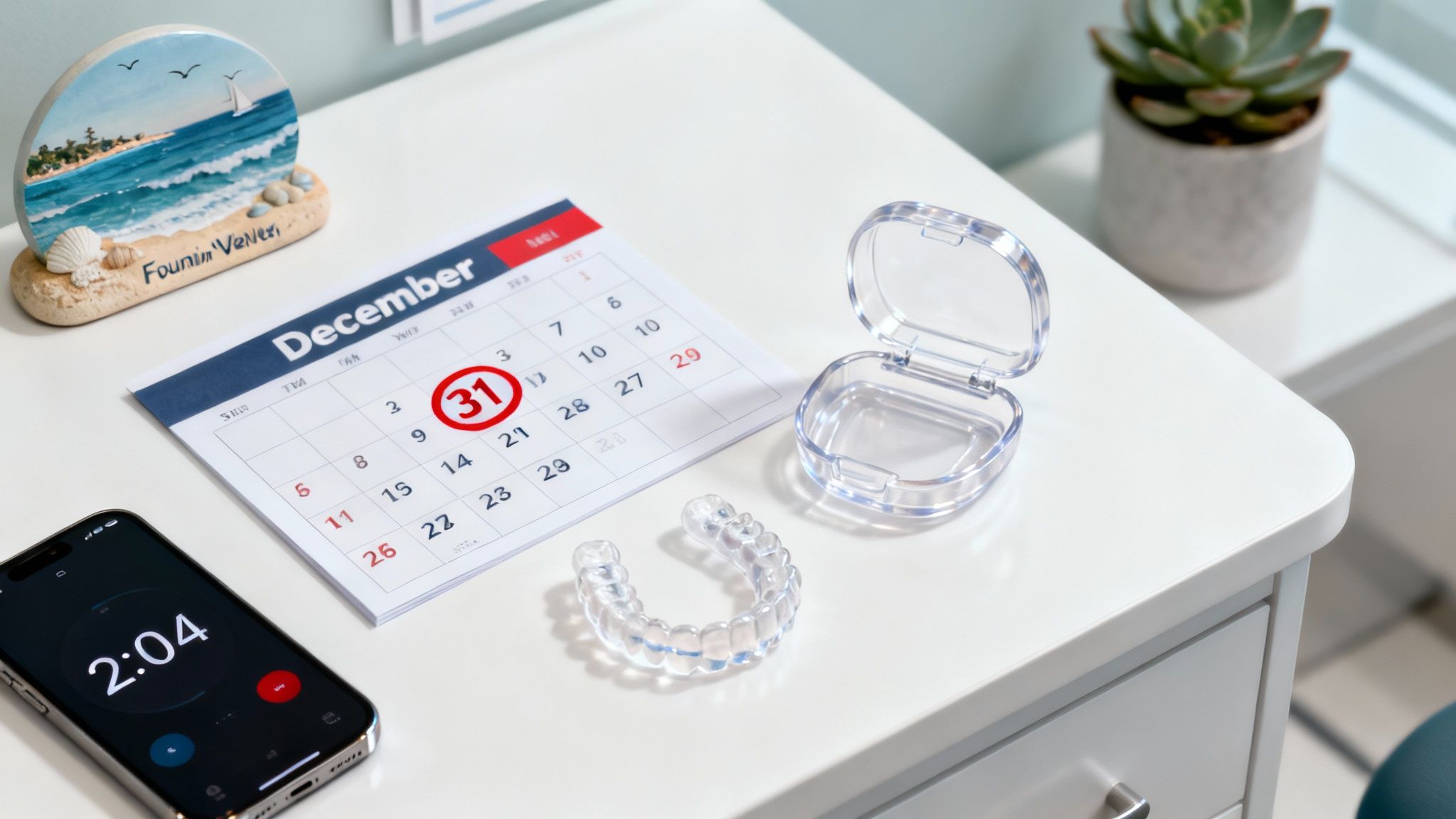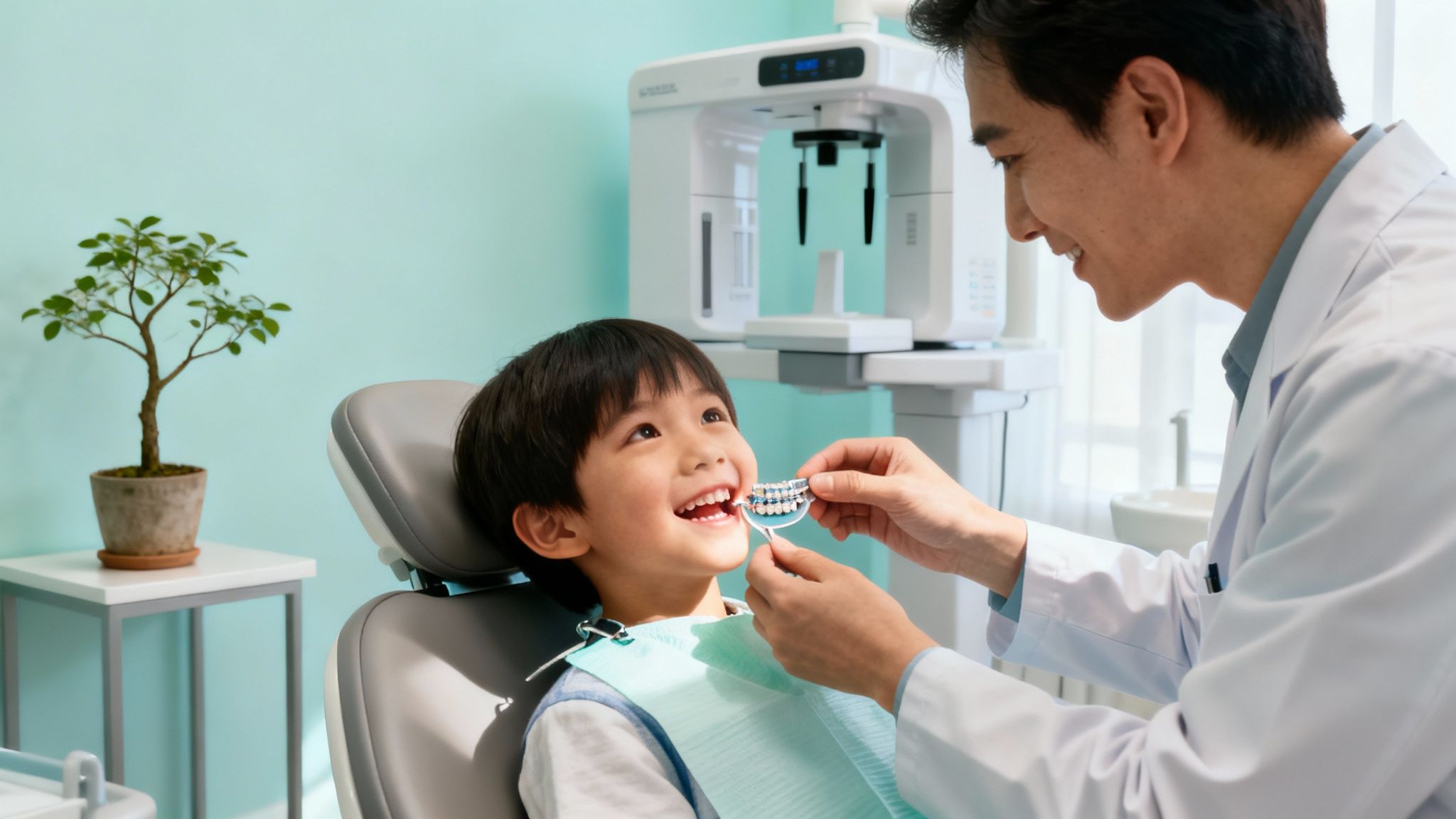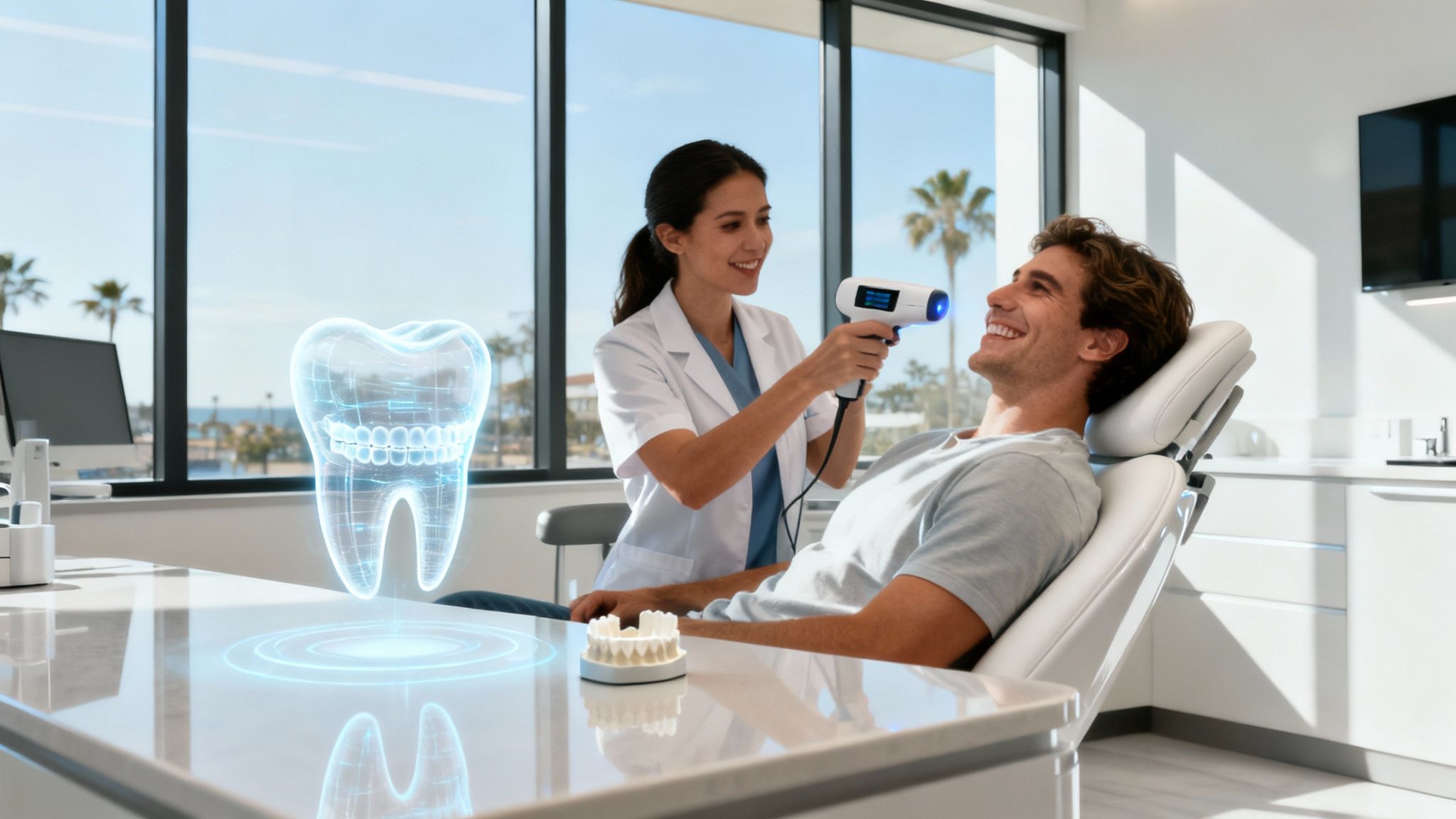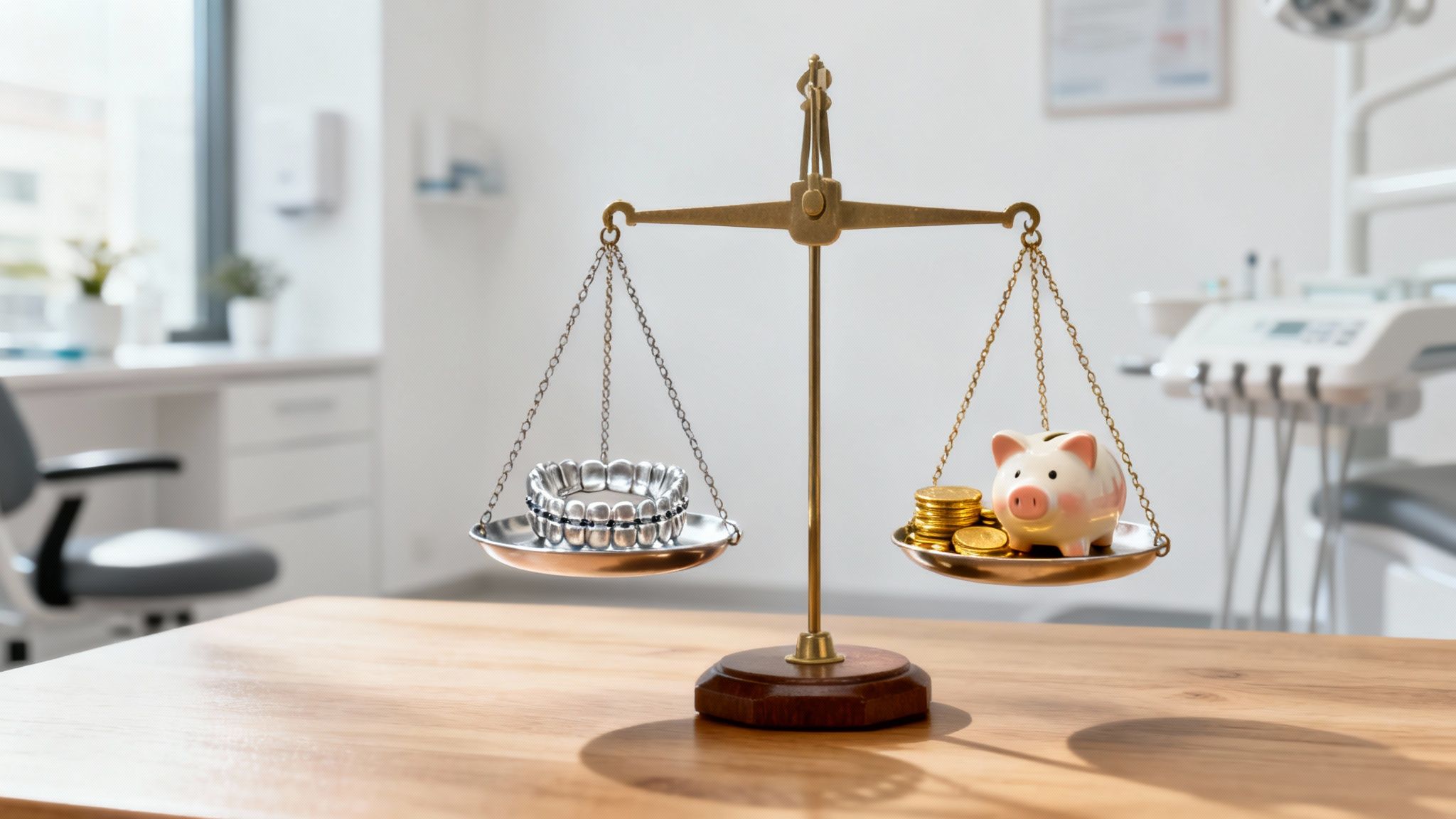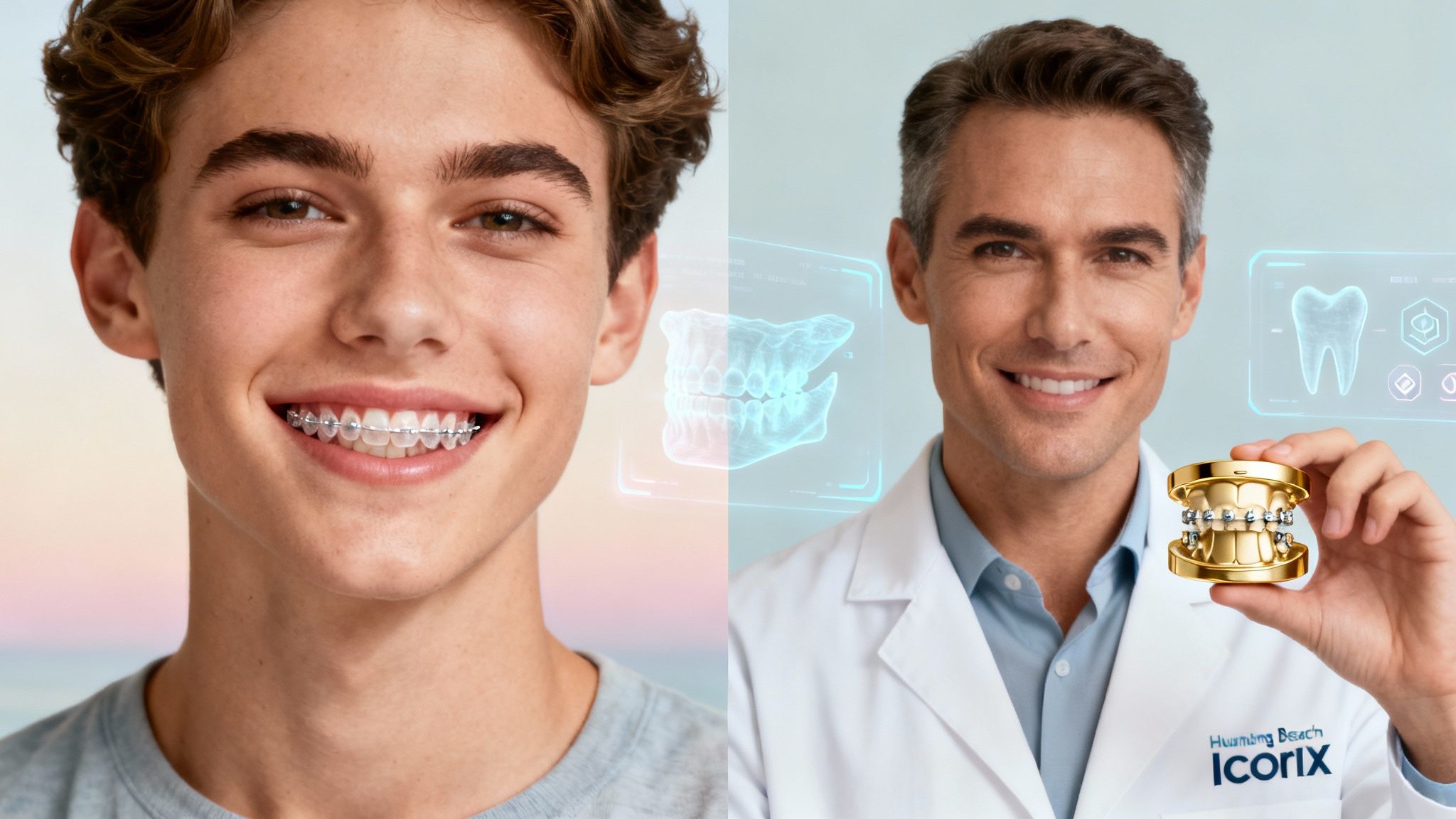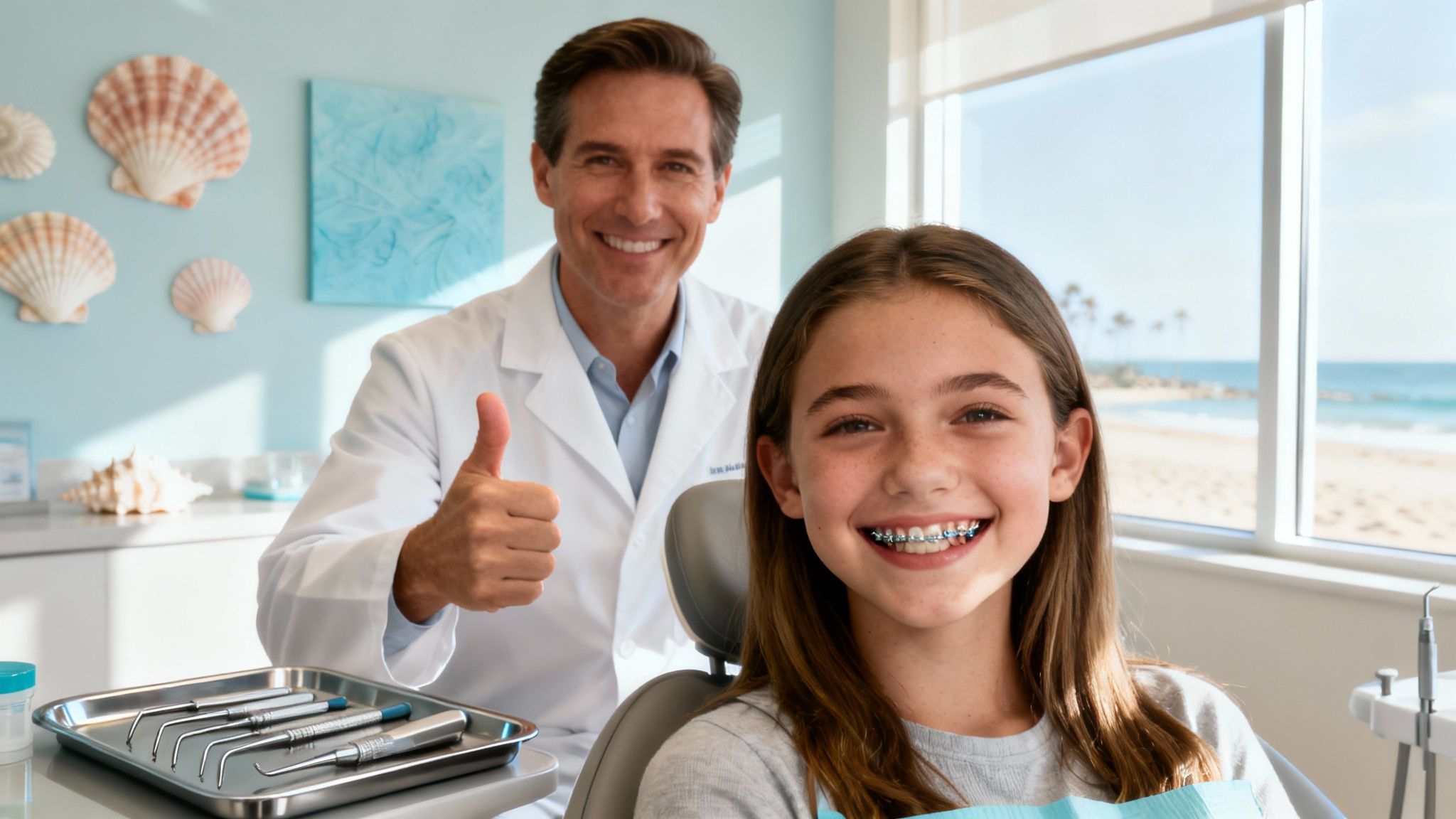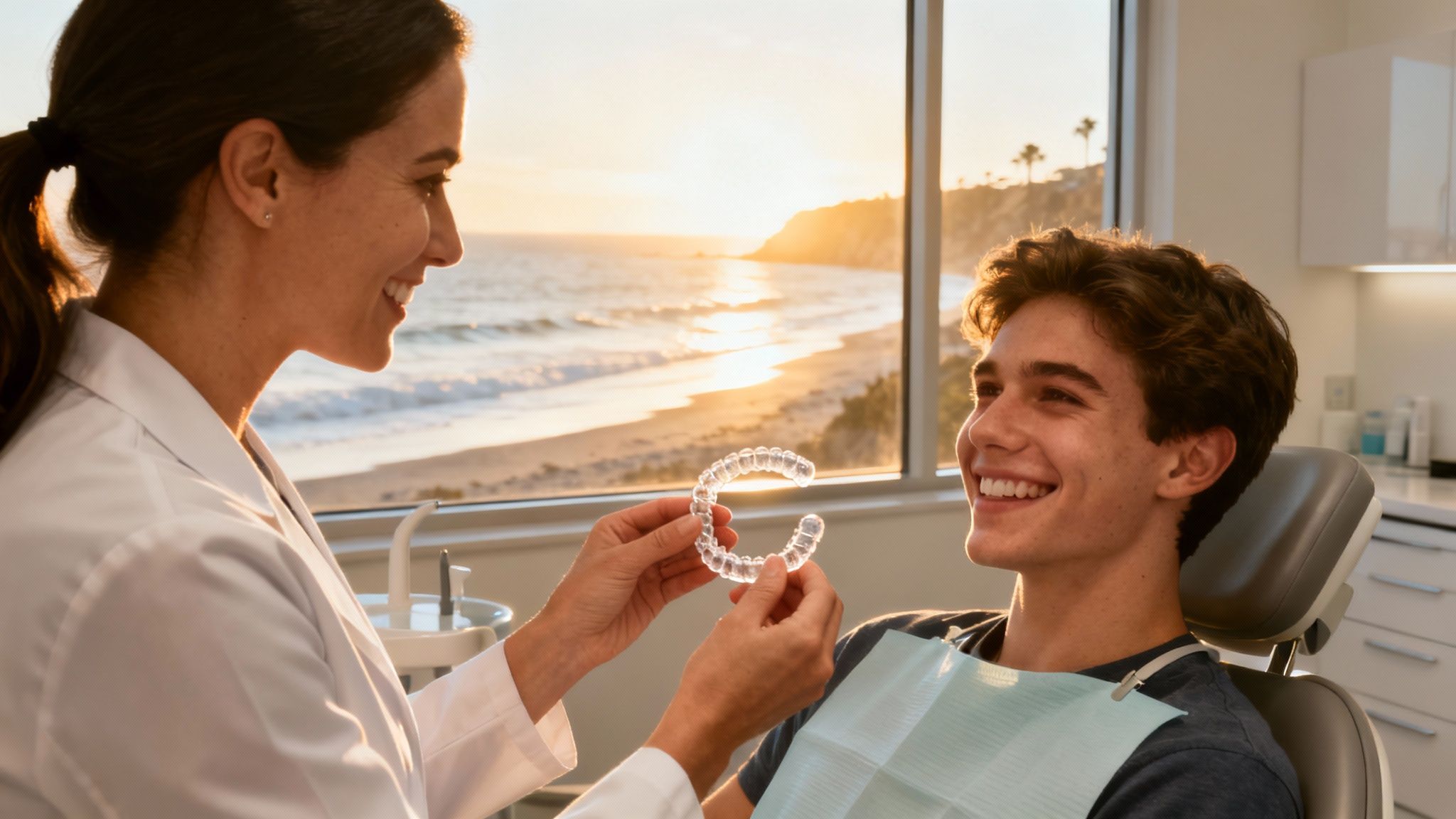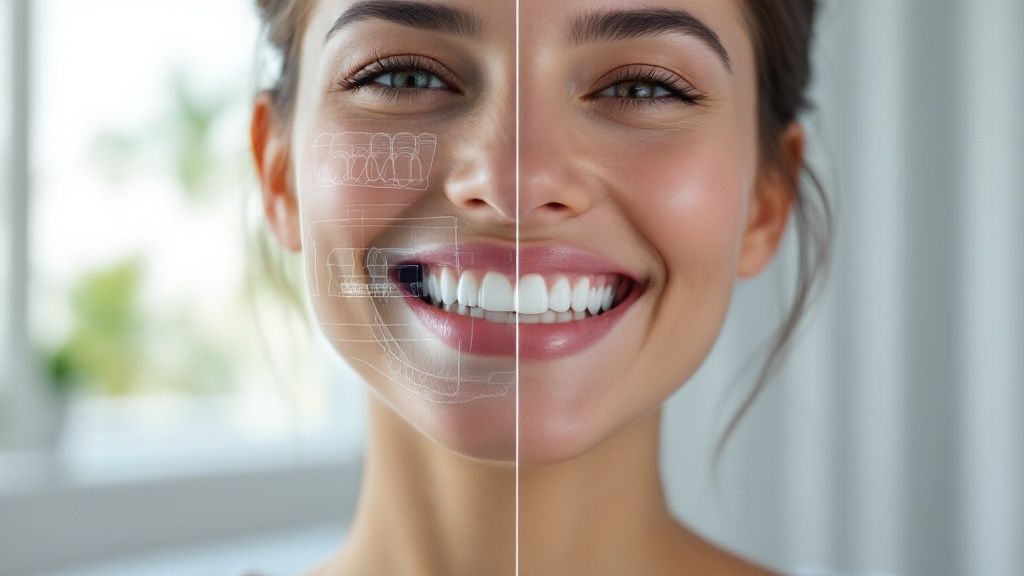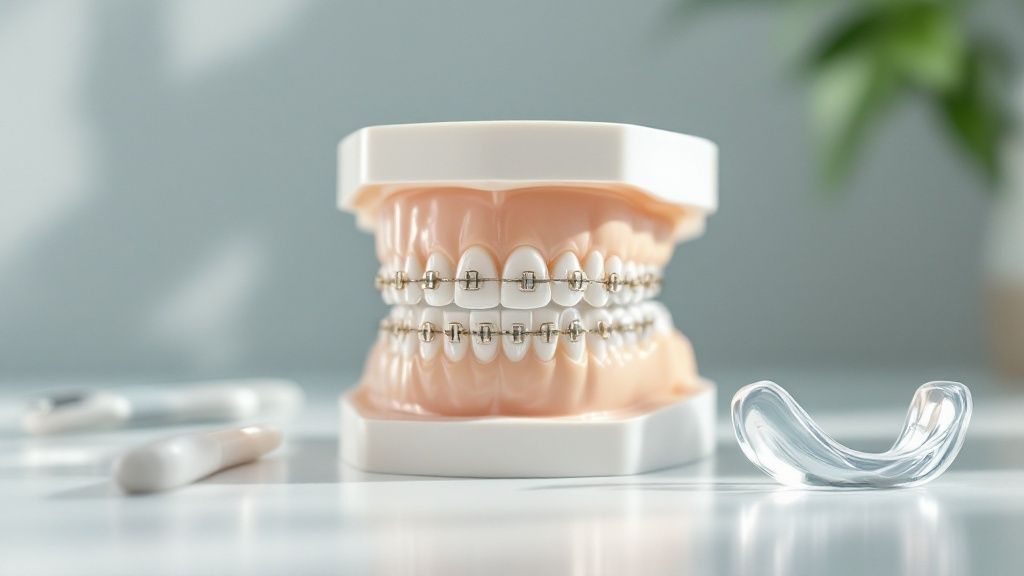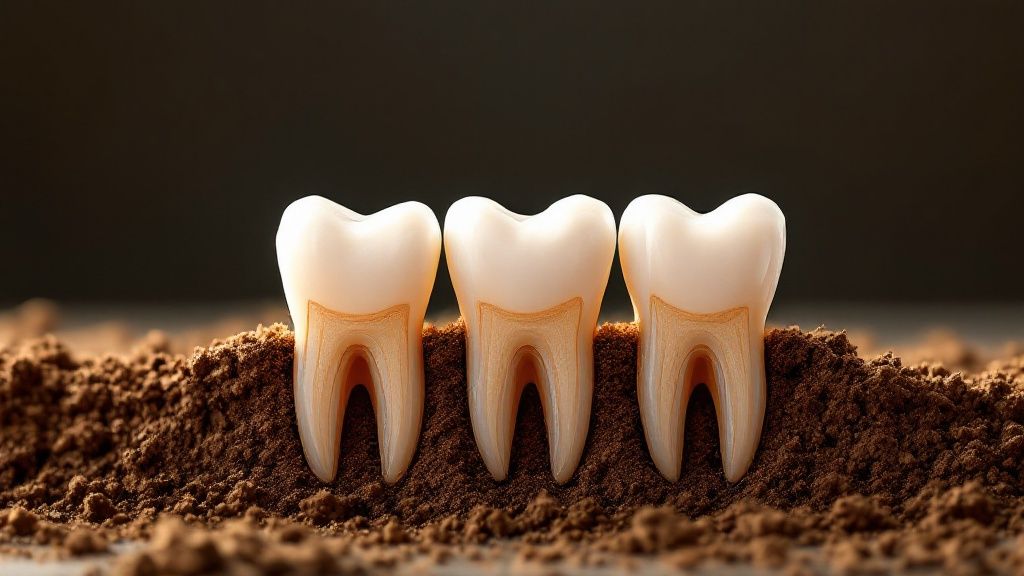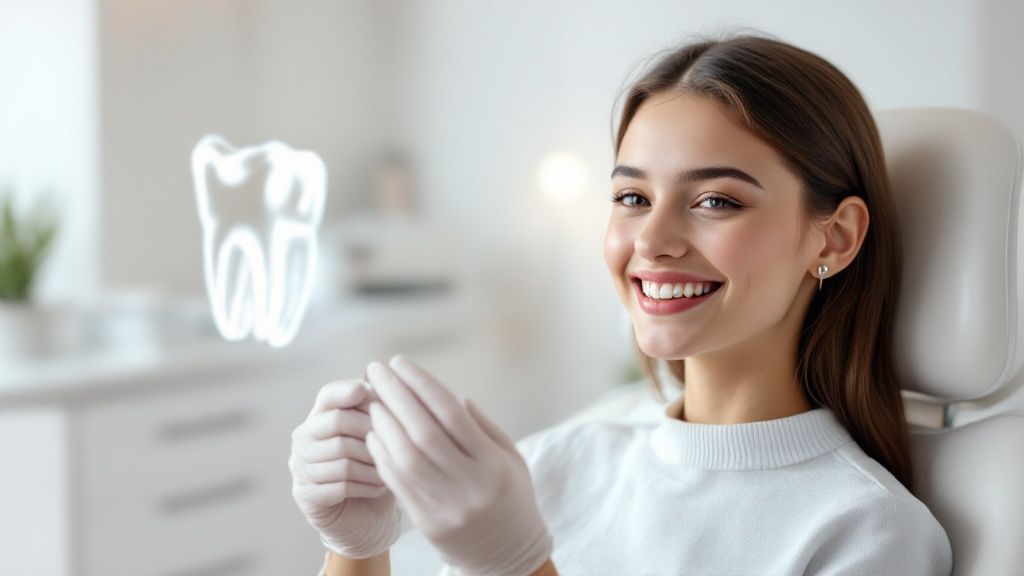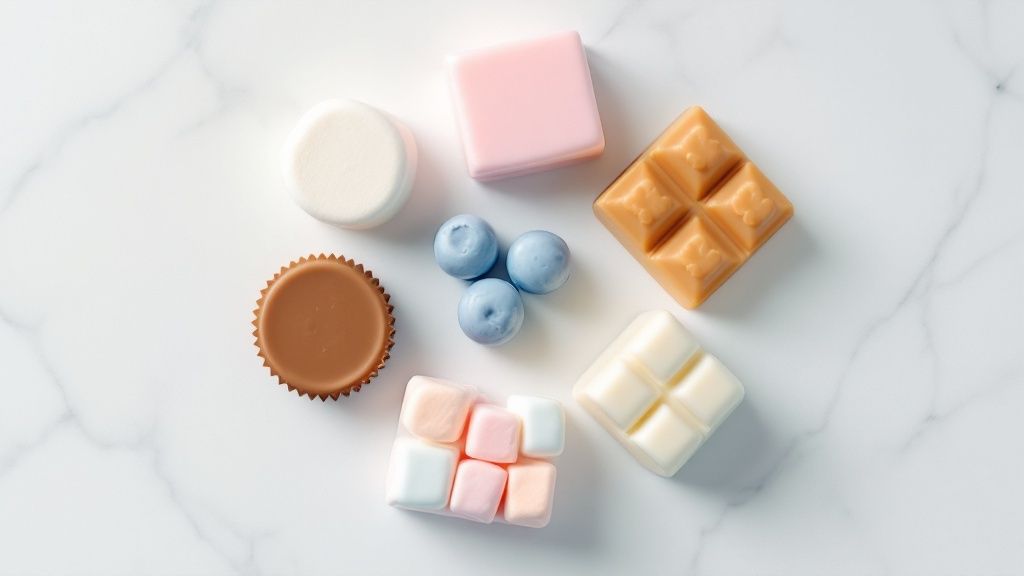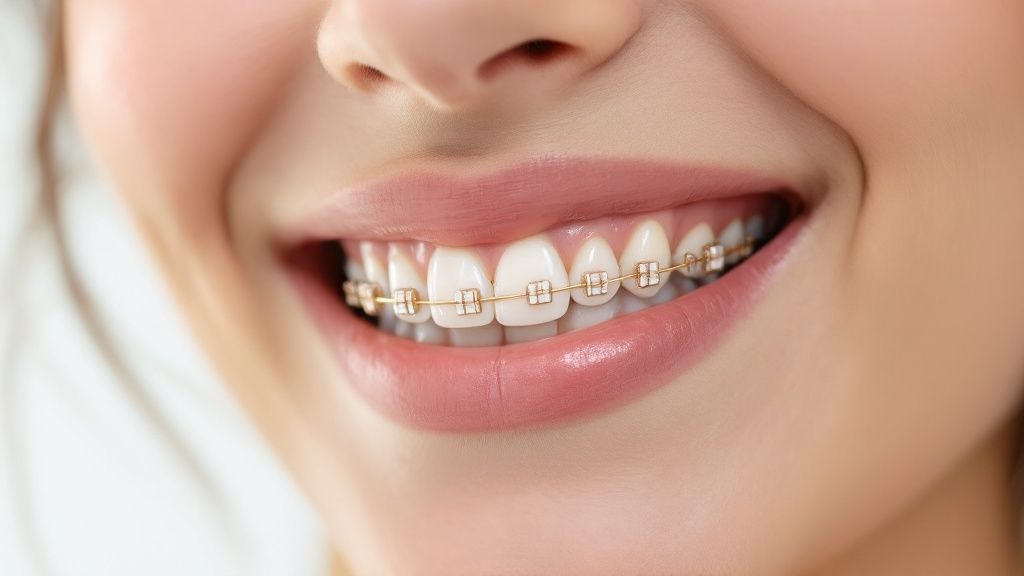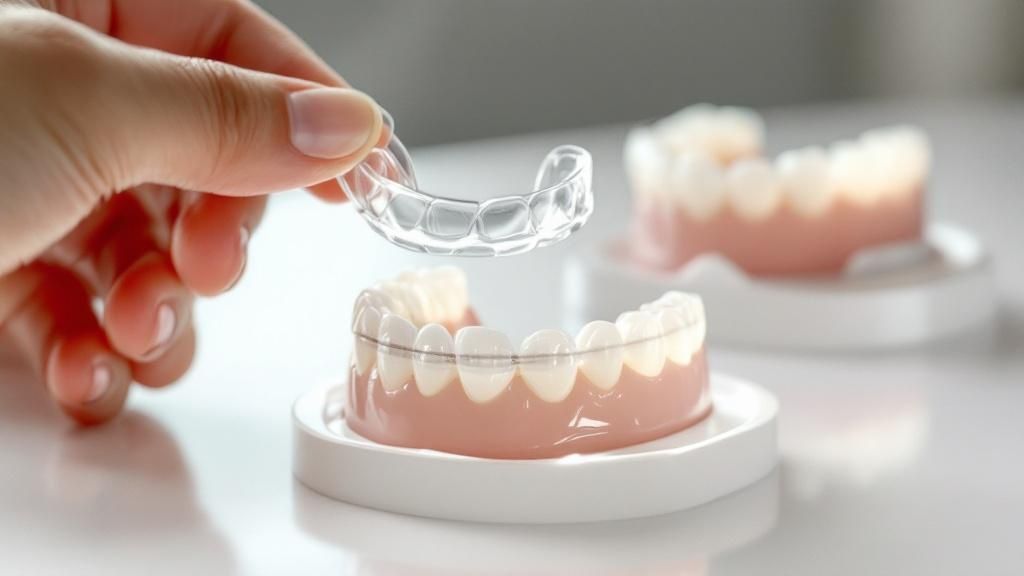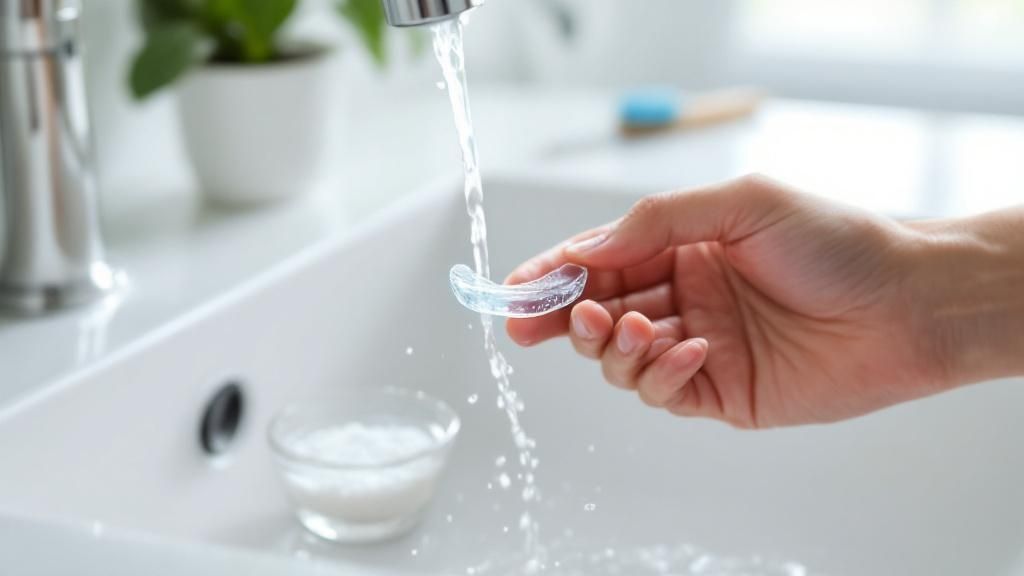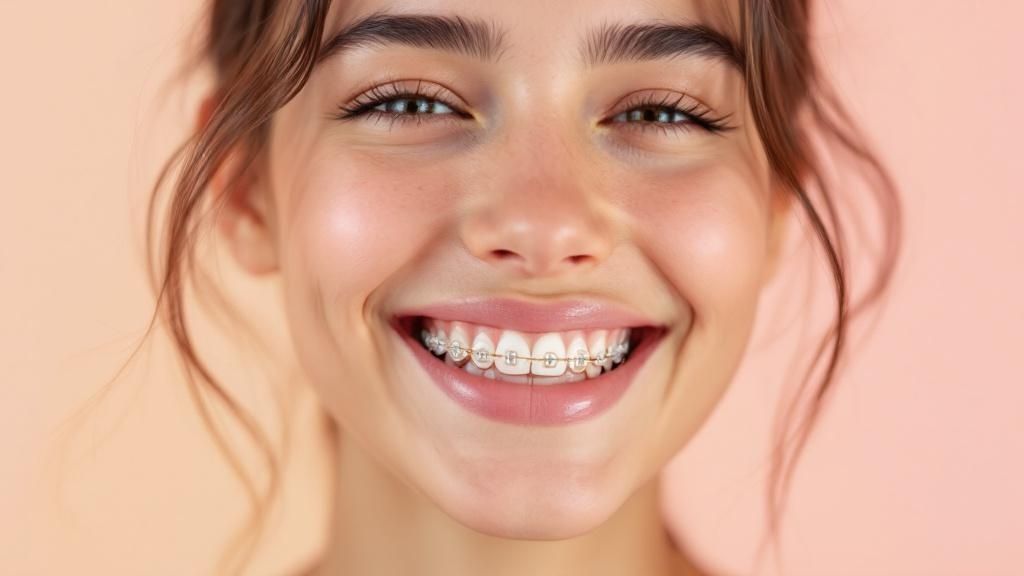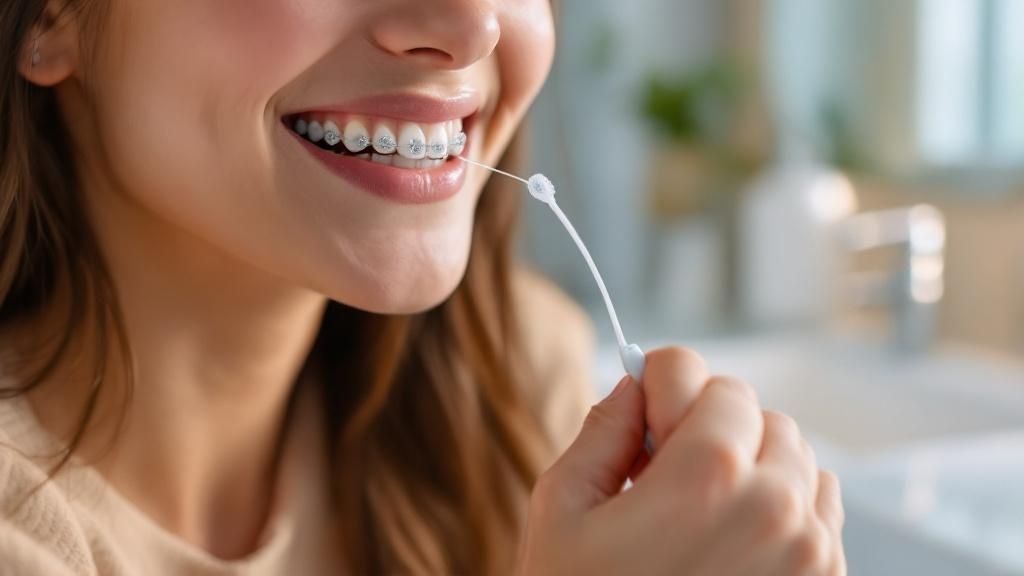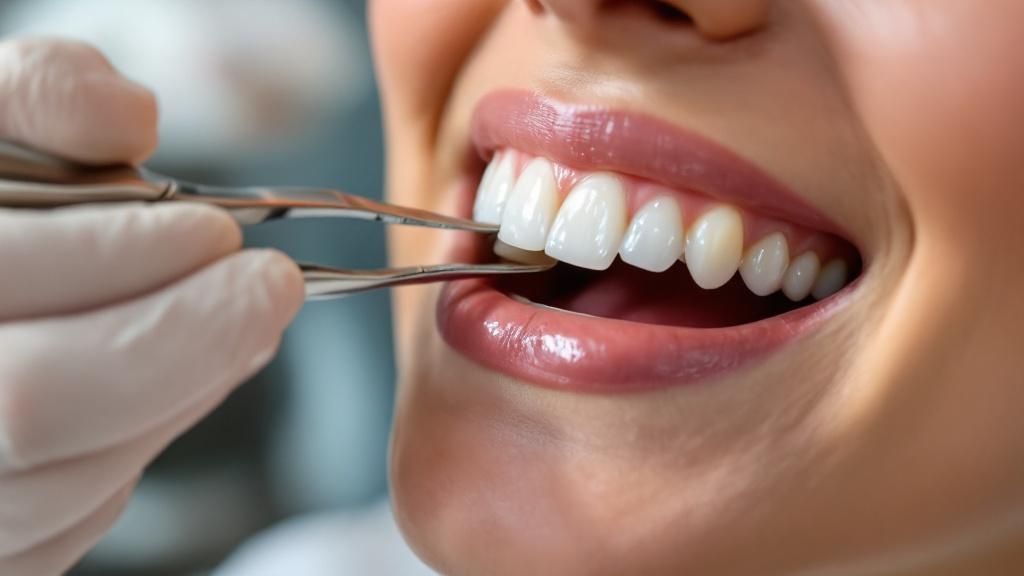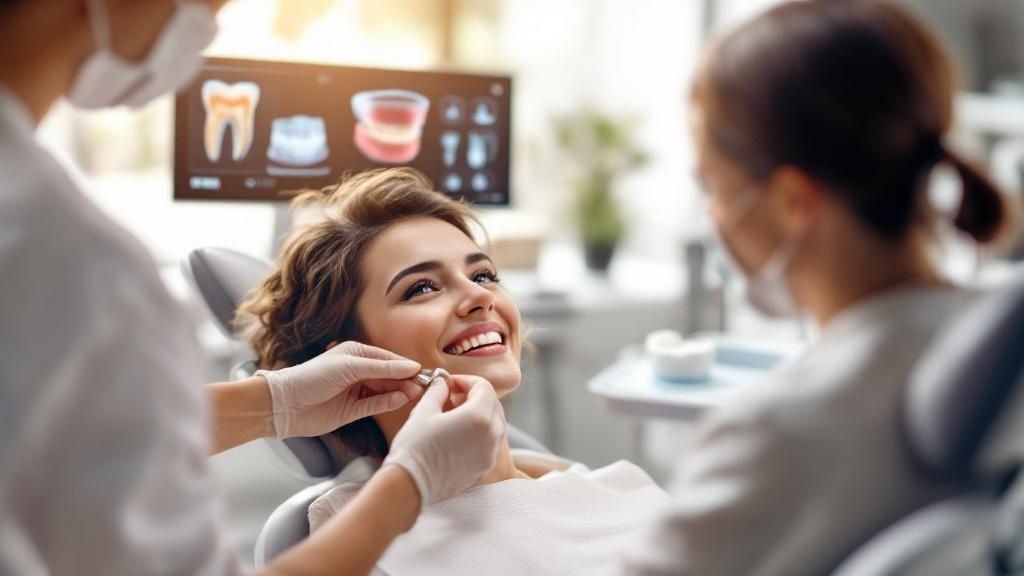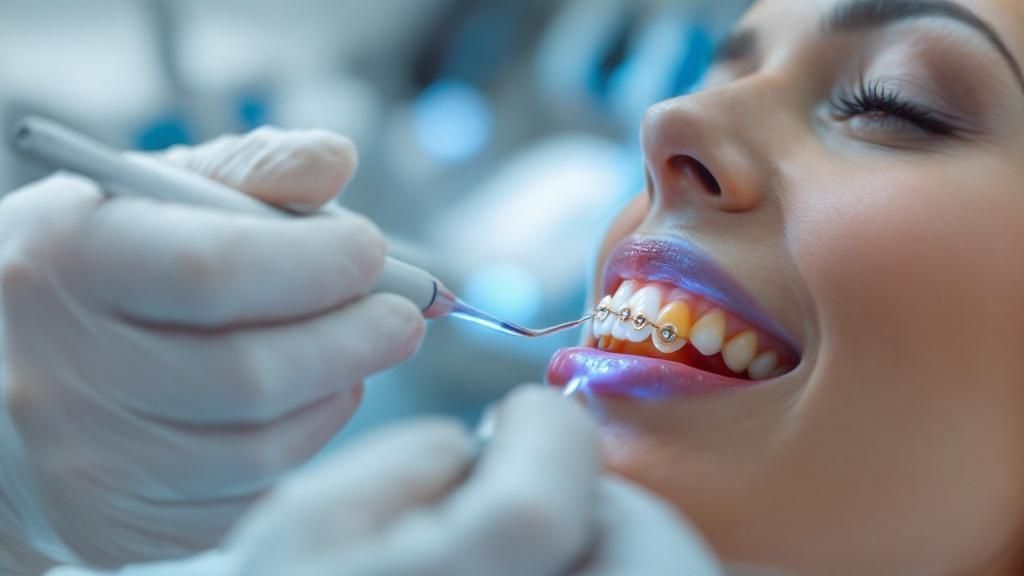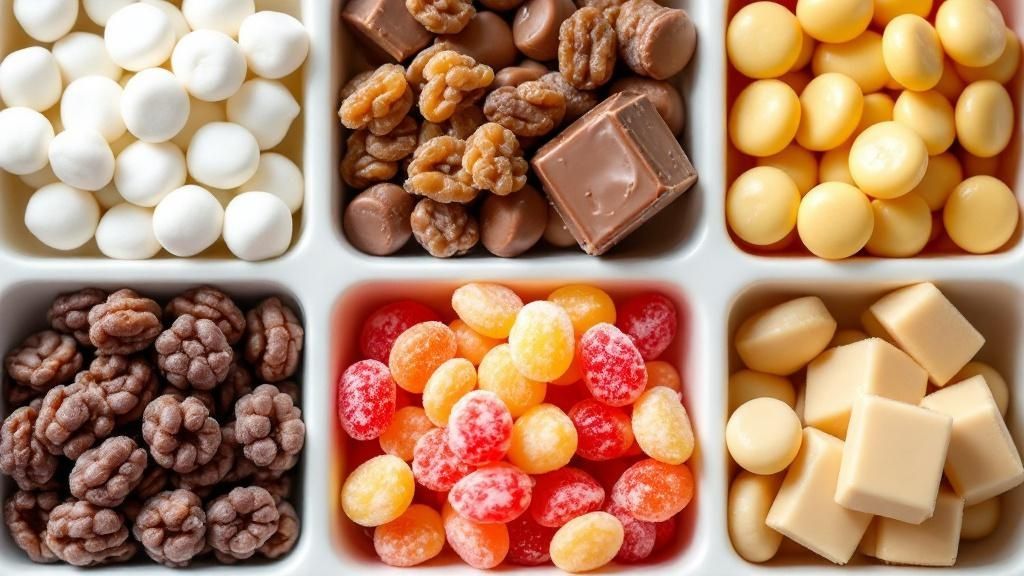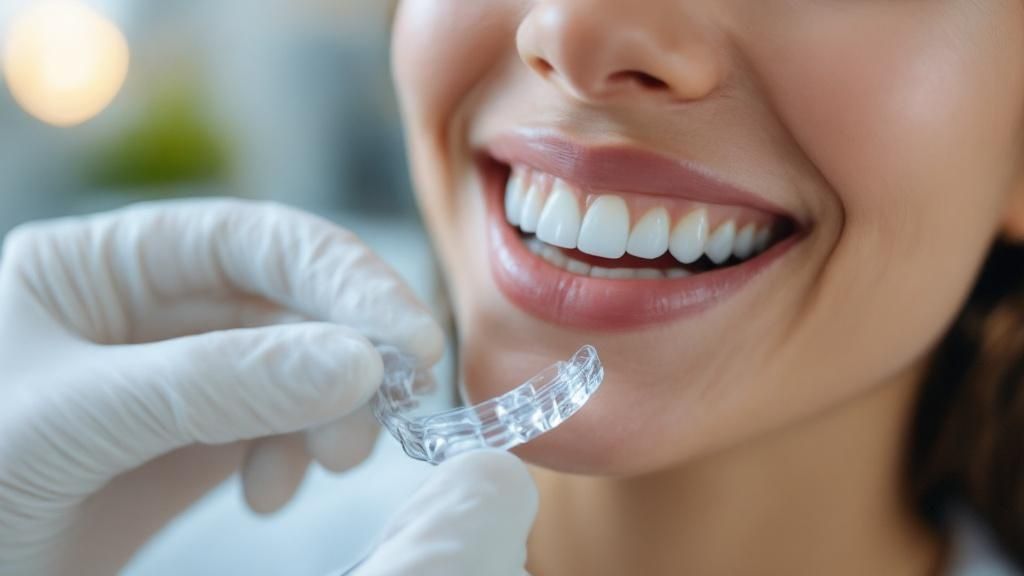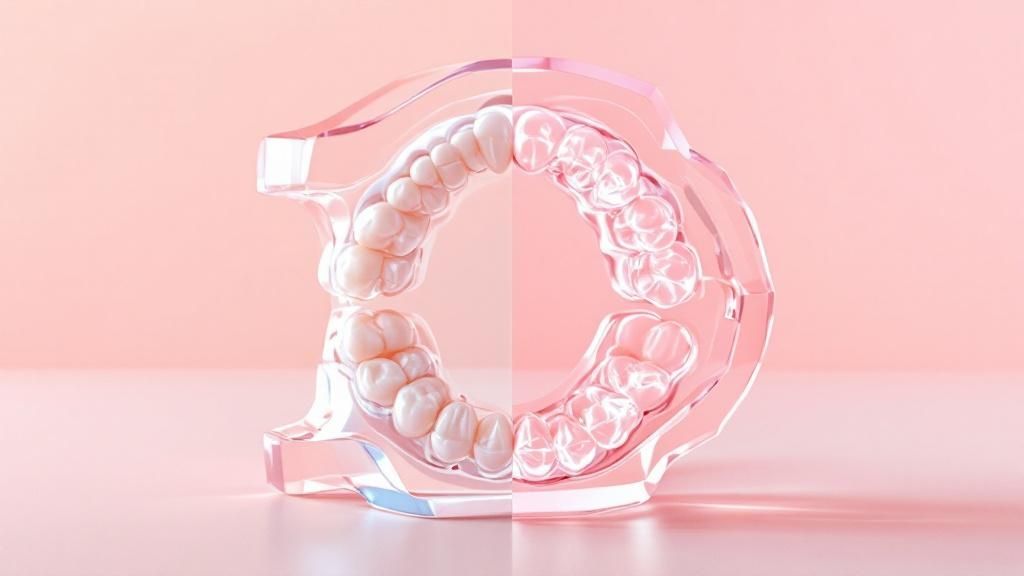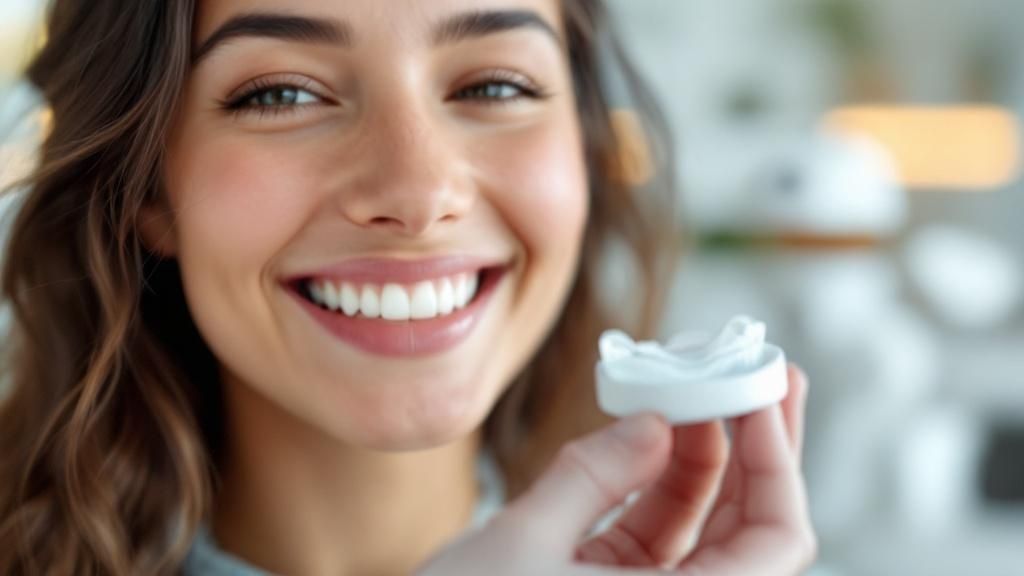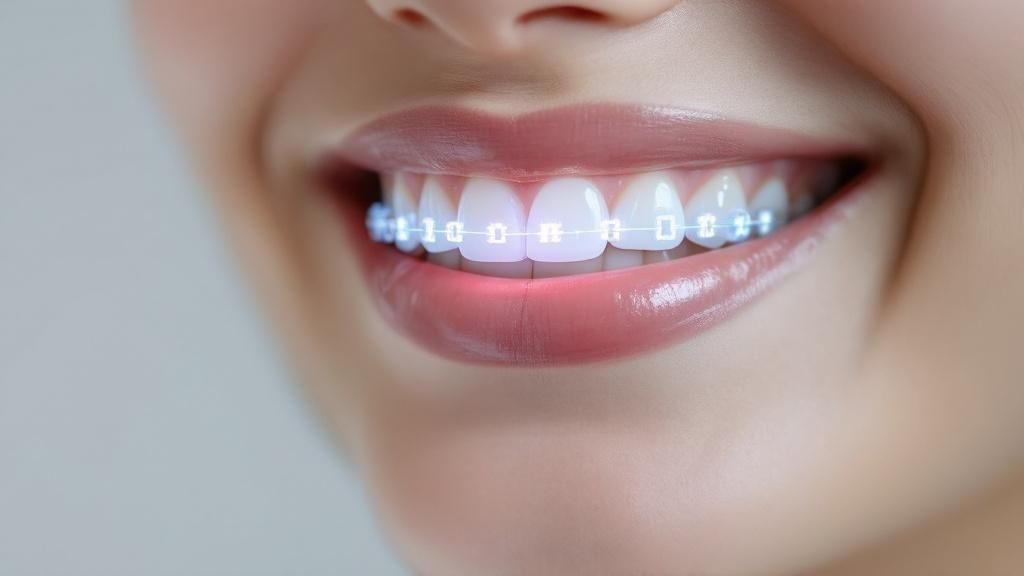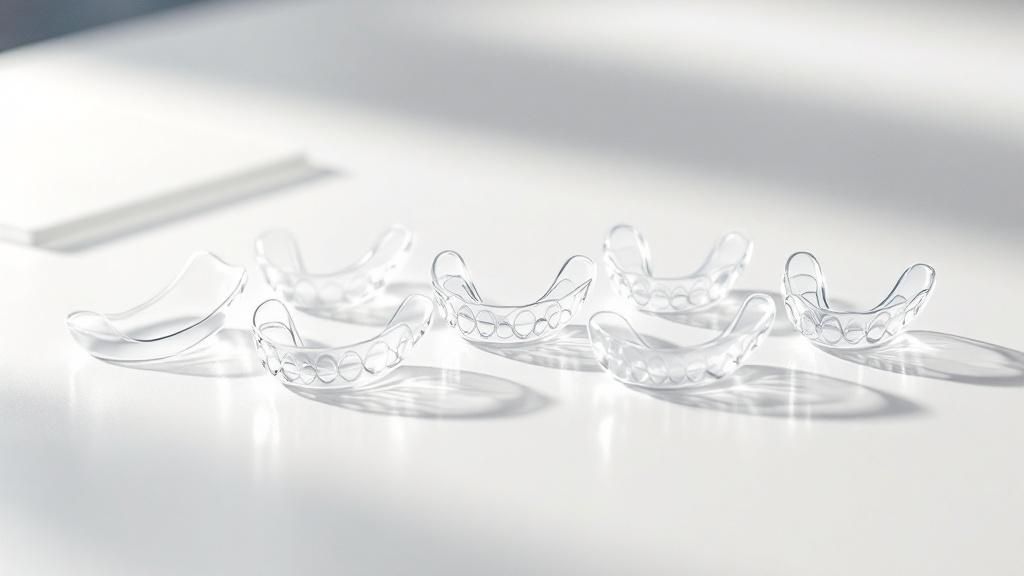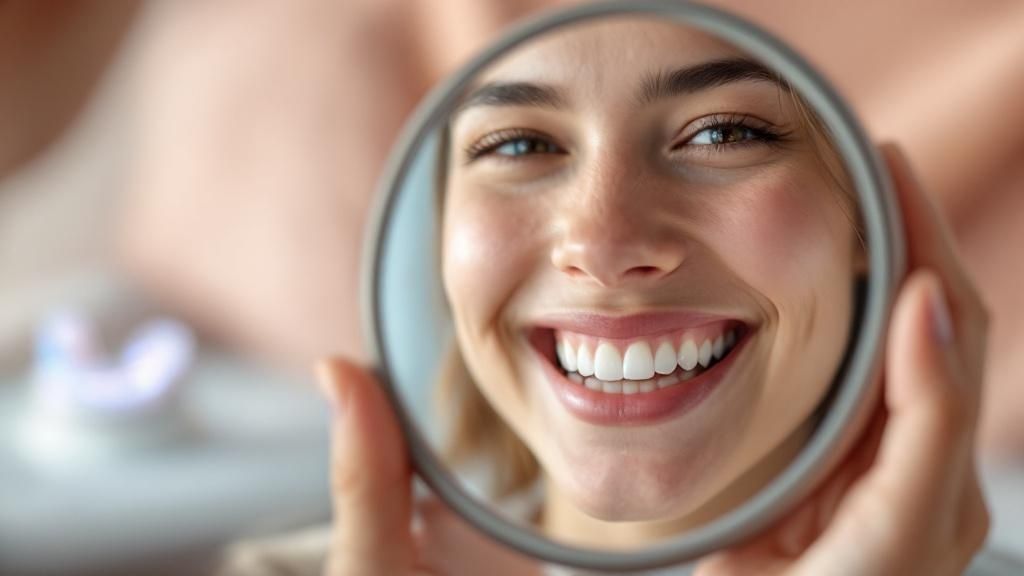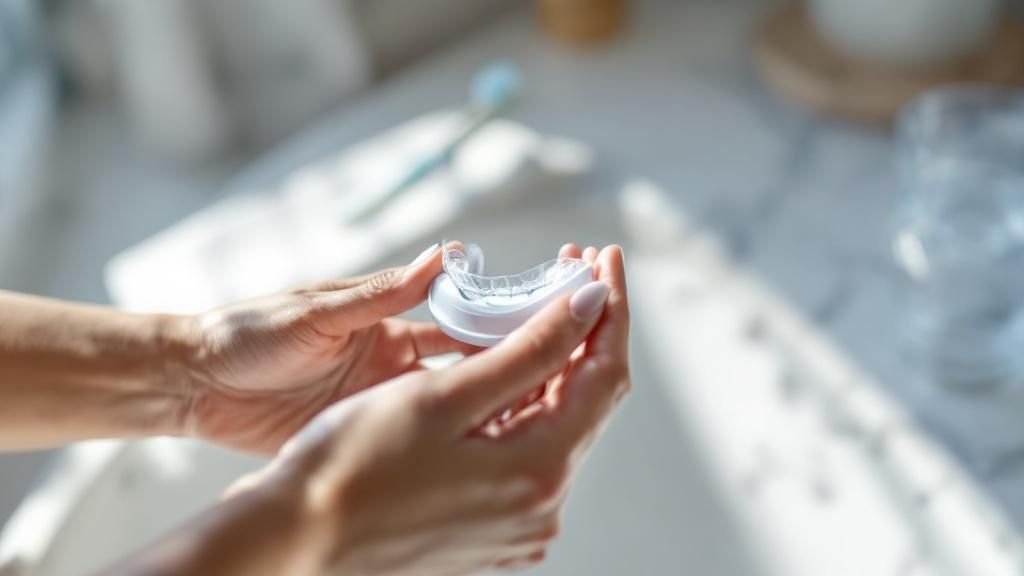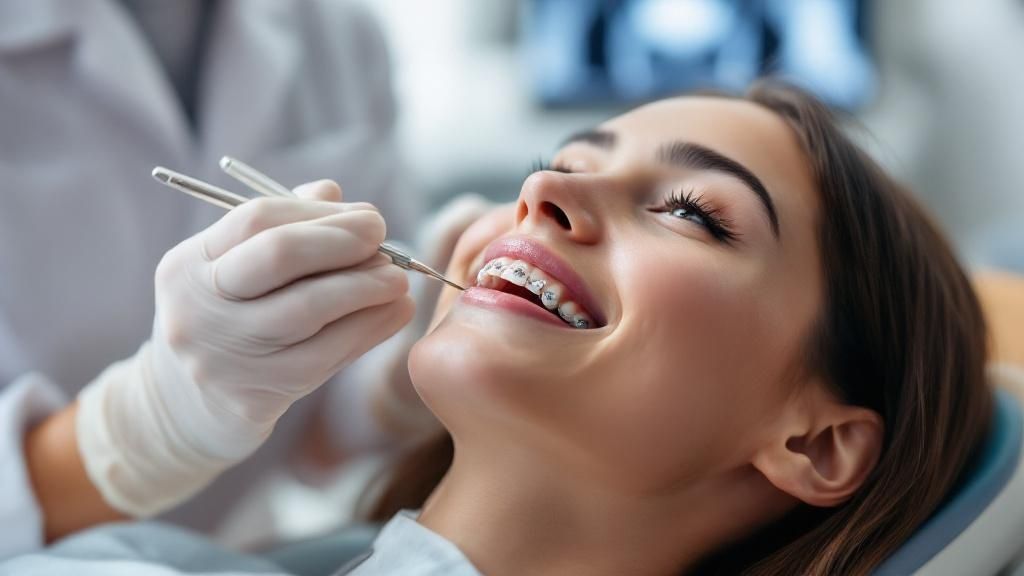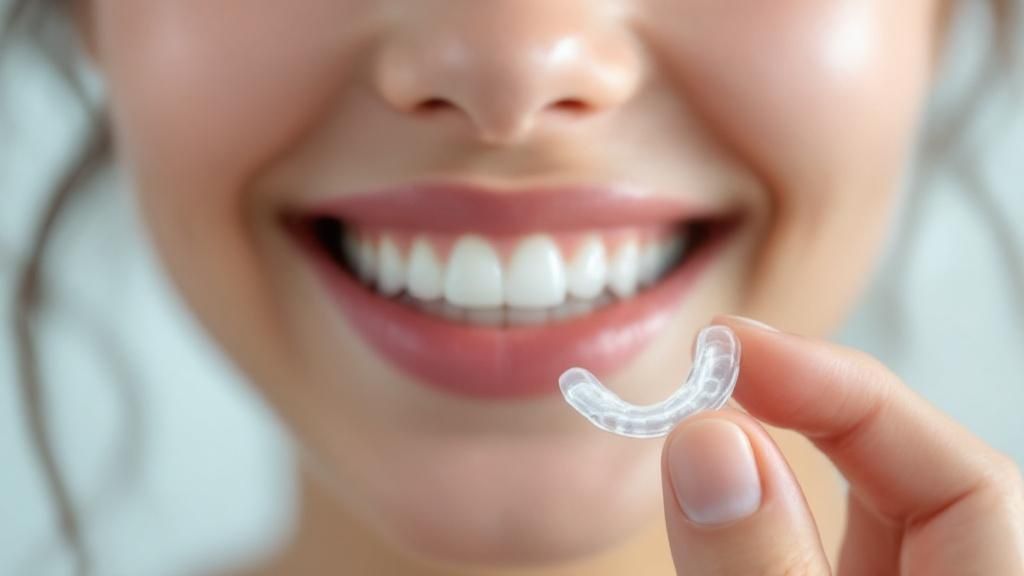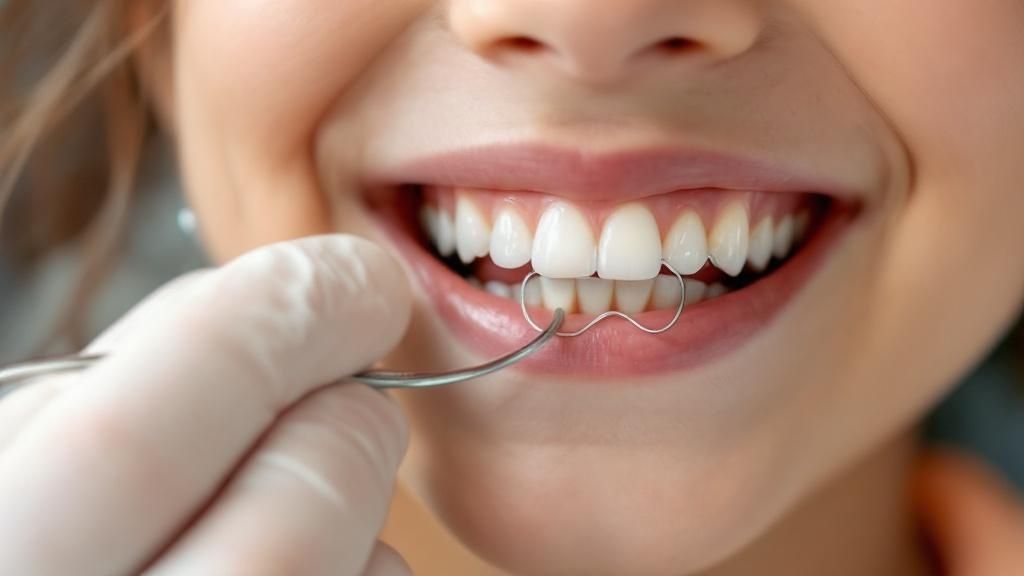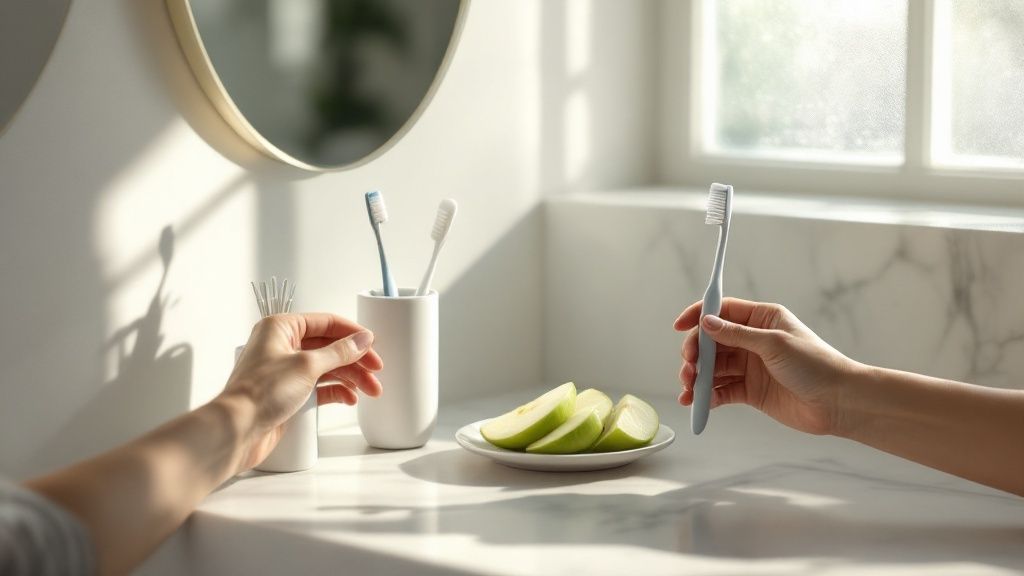
How to Improve Dental Health: A Practical Guide
Taking care of your dental health is one of the best things you can do for your overall well-being. It goes beyond just preventing cavities. A healthy smile can boost your confidence and protect your health for years to come.
From daily habits to professional care, every small step makes a huge difference. Let's explore how you can build a healthier smile starting today.
Your Path to a Healthier Smile Starts Here
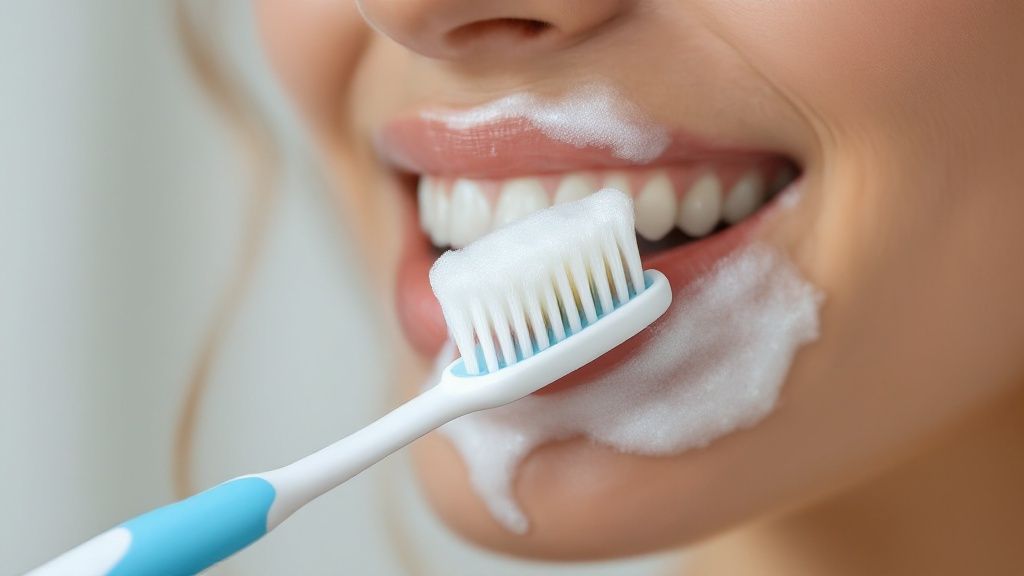
Taking control of your oral health is simpler than you think. A healthy smile is built on consistent, positive habits that protect your teeth and gums. Think of this guide as a roadmap to a brighter, more confident you.
We'll cover daily routines, the impact of your diet, and the role of professional care. For families in Huntington Beach and Fountain Valley, these steps are key to lasting results.
Why Dental Health Matters More Than You Think
A healthy mouth is often called the window to your overall health. The connection between your gums and your body is well-documented. Poor oral hygiene can link to heart conditions and diabetes management.
Neglecting your teeth can lead to more than just a toothache; it can affect your entire body. Around 3.5 billion people worldwide suffer from oral diseases. In the U.S., only 64% of adults visited a dentist in the past year. (Source: World Health Organization)
A great smile is a team effort between you and your dental professionals. Your daily habits are the offense, while regular check-ups provide the defense.
Building a Foundation for a Lifetime of Smiles
Creating a healthy smile is a partnership between you and your dental team. Your at-home care, combined with professional guidance, ensures the best results. This is especially true if you are considering orthodontic treatment.
Orthodontics doesn't just straighten teeth. It also improves your bite and makes cleaning much easier.
Whether you're exploring options for your child in Goldenwest or for yourself in Oak View, the goal is the same. A properly aligned smile is easier to care for and leads to better oral hygiene for life.
We'll dive into a few key areas:
- Mastering the Basics: Perfecting your brushing and flossing.
- Eating for Your Teeth: Making simple food swaps that strengthen enamel.
- Professional Partnerships: Understanding cleanings and orthodontic check-ups.
At Magic Fox Orthodontics, we offer a complete overview of our orthodontic services to support your dental health goals. This guide is your starting point for building lifelong habits.
Mastering Your Daily Oral Hygiene Routine
A healthy smile is built on small, consistent habits you practice every day. We all know to brush twice a day. But mastering the details is how you truly improve your dental health.
Let's dig into the small adjustments that deliver big results. The foundation is proper brushing. How you brush is just as important as how often.
The goal is to gently clear away plaque from every nook and cranny. It’s not about scrubbing your teeth hard.
Fine-Tuning Your Brushing Technique
To get the most out of each brushing, hold your toothbrush at a 45-degree angle to your gums. This angle helps the bristles sweep plaque from the tooth surface and below the gumline.
Use short, gentle, tooth-wide strokes. Brushing too hard can damage your enamel and irritate your gums.
Please brush for a full two minutes. Use a timer on your phone or an electric toothbrush with a built-in timer. Divide your mouth into four sections and spend 30 seconds on each.
Making Flossing a Non-Negotiable Habit
Flossing is a step many people skip. Yet it’s critical for removing the 40% of plaque your toothbrush can't reach between your teeth.
Start with about 18 inches of floss. Wrap most of it around one middle finger and a small amount on the other. Gently guide the floss between your teeth with a soft rubbing motion.
Once at the gumline, curve it into a C-shape against one tooth. Slide it gently into the space between the gum and the tooth.
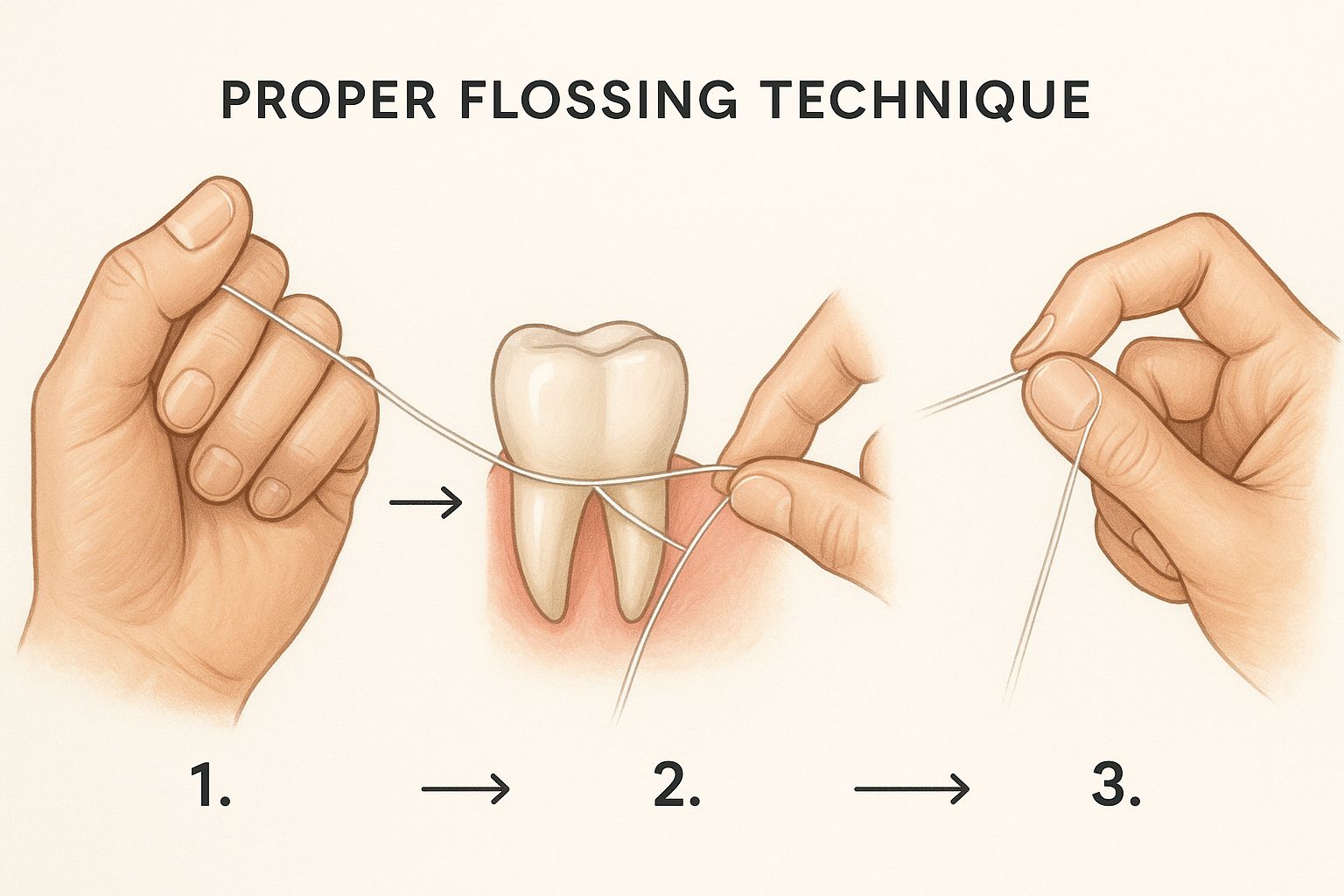
The "C-shape" hug is the most important part. It ensures you’re cleaning below the gumline.
"Think of flossing as erasing the plaque your toothbrush couldn't reach. It's a critical step in preventing gum disease."
If you have braces, flossing is even more crucial. We have a helpful guide on how to floss with braces for our Huntington Beach patients. Water flossers can also help you clean around wires and brackets.
Your Daily Dental Health Checklist
Here’s a quick checklist to run through each day. It’s an easy way to cover all your bases for a healthy mouth.
Sticking to this routine is the most powerful thing you can do for your oral health.
Common Mistakes to Avoid
It's easy to fall into bad habits. Being aware of these common mistakes is the first step toward correcting them.
- Brushing Too Hard: Aggressive brushing wears down enamel and can cause gum recession. Let the soft bristles do the work.
- Forgetting Your Tongue: Your tongue collects bacteria that cause bad breath. Gently brush it each day.
- Using an Old Toothbrush: A frayed toothbrush doesn't clean well. Replace it every three to four months.
- Rinsing with Water Right After Brushing: This washes away the helpful fluoride from your toothpaste. Just spit out the extra paste and let the fluoride work.
How Your Diet Impacts Your Dental Health
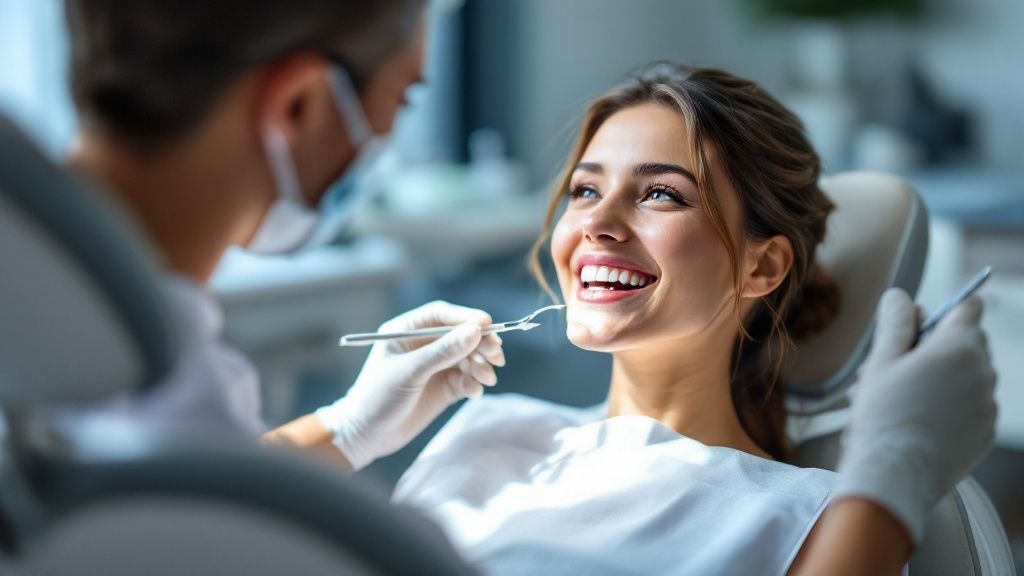
What you eat directly affects your teeth and gums. The foods you consume can either help or harm the bacteria in your mouth.
Making smart food choices is a huge part of improving your dental health. For families in Huntington Beach and Fountain Valley, even simple swaps can make a big difference.
Understanding the Culprits: Sugar and Acid
The two main offenders for your teeth are sugar and acid. When you eat sugary foods, bacteria in your mouth produce acids. These acids attack your tooth enamel, the hard outer layer of your teeth.
Sticky snacks like gummy candies are tough on teeth because they cling to surfaces longer. Sipping a sugary soda all day is like constantly bathing your teeth in acid.
The Power of Smile-Friendly Foods
The good news is that many foods help protect and strengthen your teeth. Eating these "smile-friendly" foods gives your mouth a powerful defense against decay.
These foods also help clean your teeth naturally as you eat them.
Here are a few types of foods that are great for your dental health:
- Crunchy Fruits and Vegetables: Apples, carrots, and celery increase saliva flow. Saliva is your mouth’s natural defense for washing away food and acids.
- Calcium-Rich Foods: Cheese, yogurt, and milk are packed with calcium and phosphates. These minerals help rebuild tooth enamel.
- Leafy Greens: Spinach and kale are full of vitamins and minerals. They contain folic acid, which promotes healthy gums.
Making these foods a regular part of your diet gives your teeth the building blocks they need.
A simple rule of thumb I always share with patients: if it's good for your body, it's usually good for your teeth.
Smart Swaps for a Healthier Mouth
Improving your diet for better dental health is all about small, sustainable changes. You don't need to change everything overnight.
For example, a teen in the Wintersburg area might grab an energy drink before practice. Swapping it for water removes a major source of sugar and acid.
Many everyday foods have hidden sugars. It's worth learning more about identifying hidden sugars in foods to make better choices.
If you wear braces, choosing the right foods is even more important. Check out our guide on the best foods to eat with braces to keep your treatment on track.
The Role of Professional Dental and Orthodontic Care
Daily habits are your first line of defense, but professional care is essential. Your dentist and orthodontist are your smile coaches. They provide expert guidance you can't get at home.
Regular appointments stop small issues from becoming big problems. A professional can spot early signs of decay or gum disease that you might miss.
Why Professional Cleanings Are a Must
Even with perfect brushing, you can't remove everything. Plaque hardens into a tough substance called tartar. Only a dental professional can remove tartar.
Tartar buildup can lead to gum inflammation (gingivitis) and serious gum disease. A professional cleaning is the only way to clear it away. For families in Huntington Beach, making these appointments a priority is key.
Oral diseases affect millions of people worldwide. Gum disease in adults has risen, which shows why professional care is so vital. (Source: The Lancet)
Beyond Cleanings: The Importance of Orthodontic Evaluations
Orthodontic care is more than just getting straight teeth. It's about creating a healthy, functional bite. A misaligned bite, or malocclusion, can cause problems down the road.
An orthodontist can help with issues like:
- Difficulty Cleaning: Crowded teeth create tight spaces that are hard to clean. This raises your risk for cavities and gum disease.
- Uneven Wear: A bad bite can cause teeth to wear down, chip, or fracture over time.
- Jaw Pain: Bite problems can strain the jaw joints (TMJ), causing headaches and discomfort.
Orthodontics sets the foundation for a lifetime of easier cleaning and better oral health. A properly aligned smile is healthier and more durable.
How Orthodontics and Dentistry Work Together
Your dentist and orthodontist are a team. Your dentist keeps your teeth healthy, while an orthodontist like us at Magic Fox Orthodontics focuses on alignment.
For a child in Fountain Valley, an early orthodontic check-up around age seven can spot jaw growth issues early. This can make future treatment much simpler.
Modern treatments like Invisalign clear aligners or our Iconix esthetic brackets position teeth for better function and easier cleaning. This makes your daily hygiene more effective. Learn more about when to see an orthodontist versus a dentist.
Combining professional cleanings with expert orthodontic care is a powerful way to build a beautiful, lasting smile. It's a great investment in your overall well-being.
Taking Your Smile Protection to the Next Level
Once you master daily habits, you can think more proactively about your smile. Protecting your teeth long-term means going beyond the basics. This includes shielding your teeth from harm and tackling habits like grinding.
These strategies are like long-term insurance for your smile. For families here in Huntington Beach, adding these extra layers of care can make all the difference.
Shielding Your Smile from Physical Harm
One of the best ways to protect your teeth is with a mouthguard, especially if you are active. Dental injuries are common in sports and can lead to chipped or broken teeth.
A custom-fitted mouthguard acts as a shock absorber for your teeth and jaw. It's essential for active kids and teens. Whether on a soccer field at a Goldenwest park or in any school sport, a mouthguard is key.
Putting a Stop to Teeth Grinding and Jaw Clenching
Many of us grind our teeth without knowing it, especially during sleep. This habit, called bruxism, puts a huge amount of force on your teeth and jaw. It can lead to worn enamel, cracked teeth, and jaw pain.
If you wake up with a sore jaw, talk to your dentist. A custom nightguard creates a cushion between your teeth. It prevents damage and helps your jaw muscles relax.
Protecting your smile is about more than fighting plaque. A mouthguard or nightguard is one of the smartest investments you can make for your oral health.
Adding a Therapeutic Mouthwash to Your Lineup
Therapeutic mouthwashes do real work. These rinses have active ingredients to reduce plaque, fight gingivitis, or add fluoride to your enamel.
An ADA-accepted therapeutic mouthwash can be a great finishing touch to your routine. A 30-second rinse helps kill bacteria your brush can’t reach.
Common Dental Issues and Preventive Actions
Here is a quick guide to common dental issues and how to prevent them.
A few simple, consistent habits can help you avoid major threats to your oral health.
Adapting Your Oral Care as You Age
Your oral health needs change as you get older. Things like dry mouth (a side effect of many medications) and gum recession become more common.
The number of adults over 60 is expected to double by 2050. This means more people will face age-related dental issues. You can read more about these trends from Lincoln International.
Here’s how you can adapt:
- Fight Dry Mouth: Sip water throughout the day. Ask your dentist about saliva substitutes if it's a constant problem.
- Be Kind to Your Gums: A soft-bristled brush cleans well without irritating sensitive gums.
- Never Skip Professional Visits: Regular check-ups are even more important with age. They help detect problems early.
By keeping these strategies in mind, you can build an oral health plan that serves you at every stage of life.
Frequently Asked Questions
Here are answers to some common questions we hear from families at our Huntington Beach practice. We want you to feel confident in your oral care routine.
How often should I go to the dentist?
Most dentists recommend a check-up and cleaning every six months. This allows your dental team to spot small issues before they become bigger problems. If you have a higher risk for dental issues, your dentist might suggest more frequent visits.
Is an electric toothbrush better than a manual one?
Both can do a great job with the right technique. The biggest advantage of an electric toothbrush is that it does most of the work for you. Many have built-in timers and pressure sensors to help you brush correctly. The best toothbrush is the one you will use properly every day.
What is the benefit of fluoride?
Fluoride is a natural mineral that is a superhero for your teeth. It strengthens your tooth enamel, making it more resistant to acid attacks from bacteria. It can also help reverse the earliest stages of tooth decay. Using a fluoride toothpaste is one of the easiest ways to protect your teeth.
When should my child first see an orthodontist?
The American Association of Orthodontists recommends a child’s first orthodontic check-up by age seven. This isn't about getting braces early. It's a proactive check-up to spot subtle issues with jaw growth and emerging teeth. Early evaluation can make future treatment simpler and more effective.
Do I still need to floss if I use mouthwash?
Yes, absolutely! Mouthwash can't scrub off the sticky plaque between your teeth. Flossing physically removes plaque and food particles from areas your toothbrush can't reach. Mouthwash is a great final step, but it doesn't replace flossing.
Ready to take the next step toward a healthier, more confident smile? The team at Magic Fox Orthodontics is here to guide you with personalized care and modern treatment options.
Contact us today at Magic Fox Orthodontics to schedule your free consultation in Huntington Beach!

